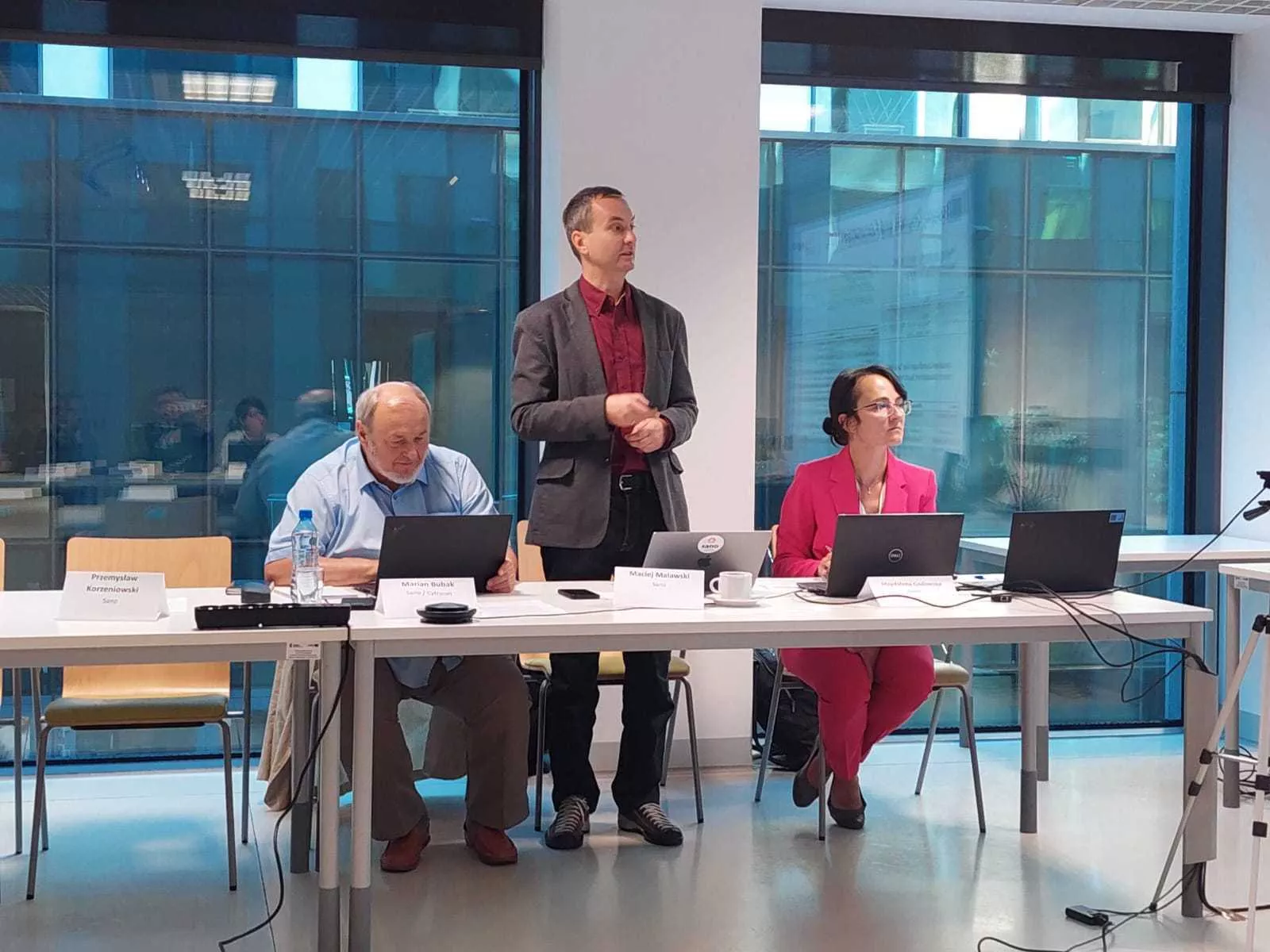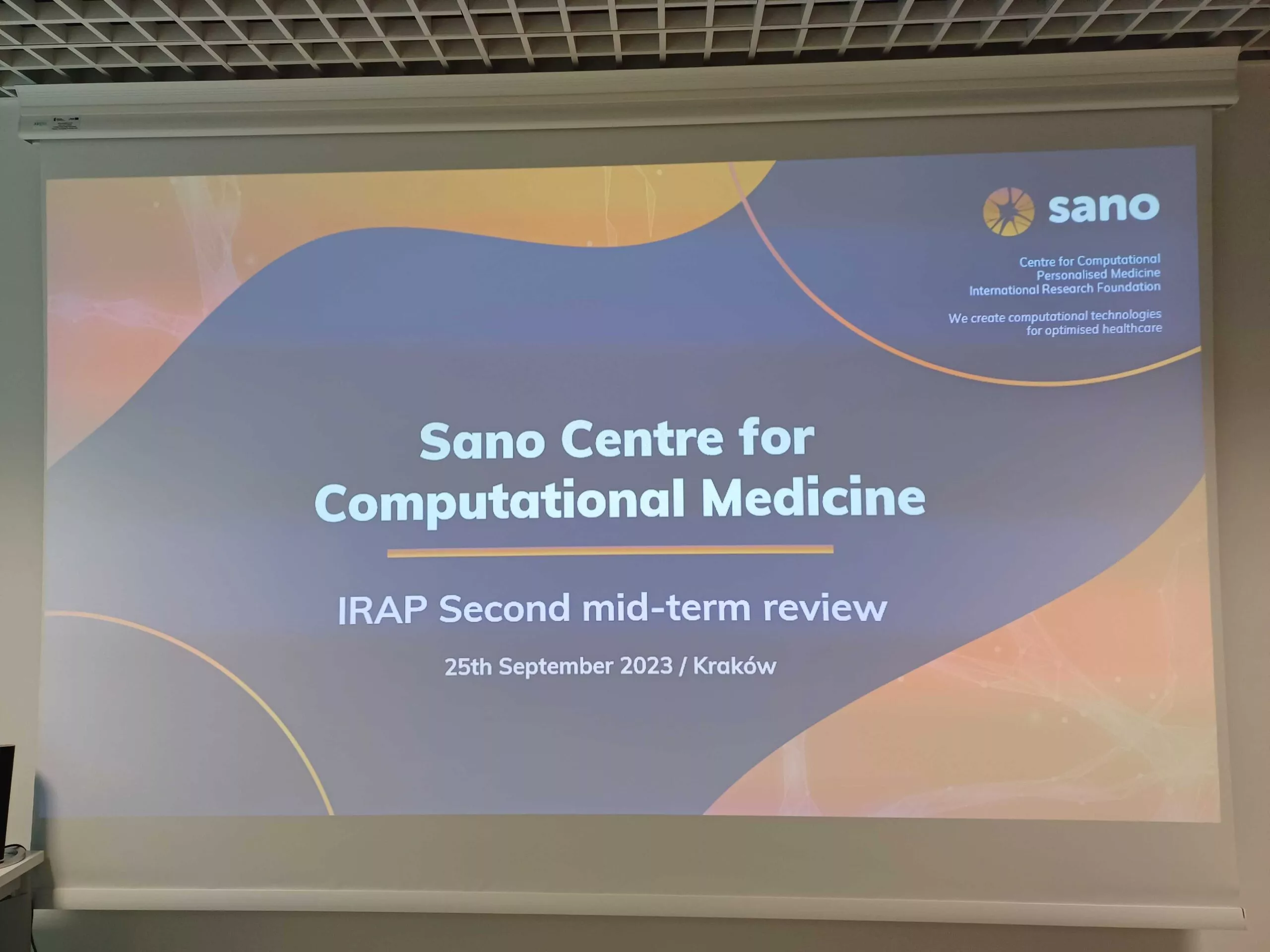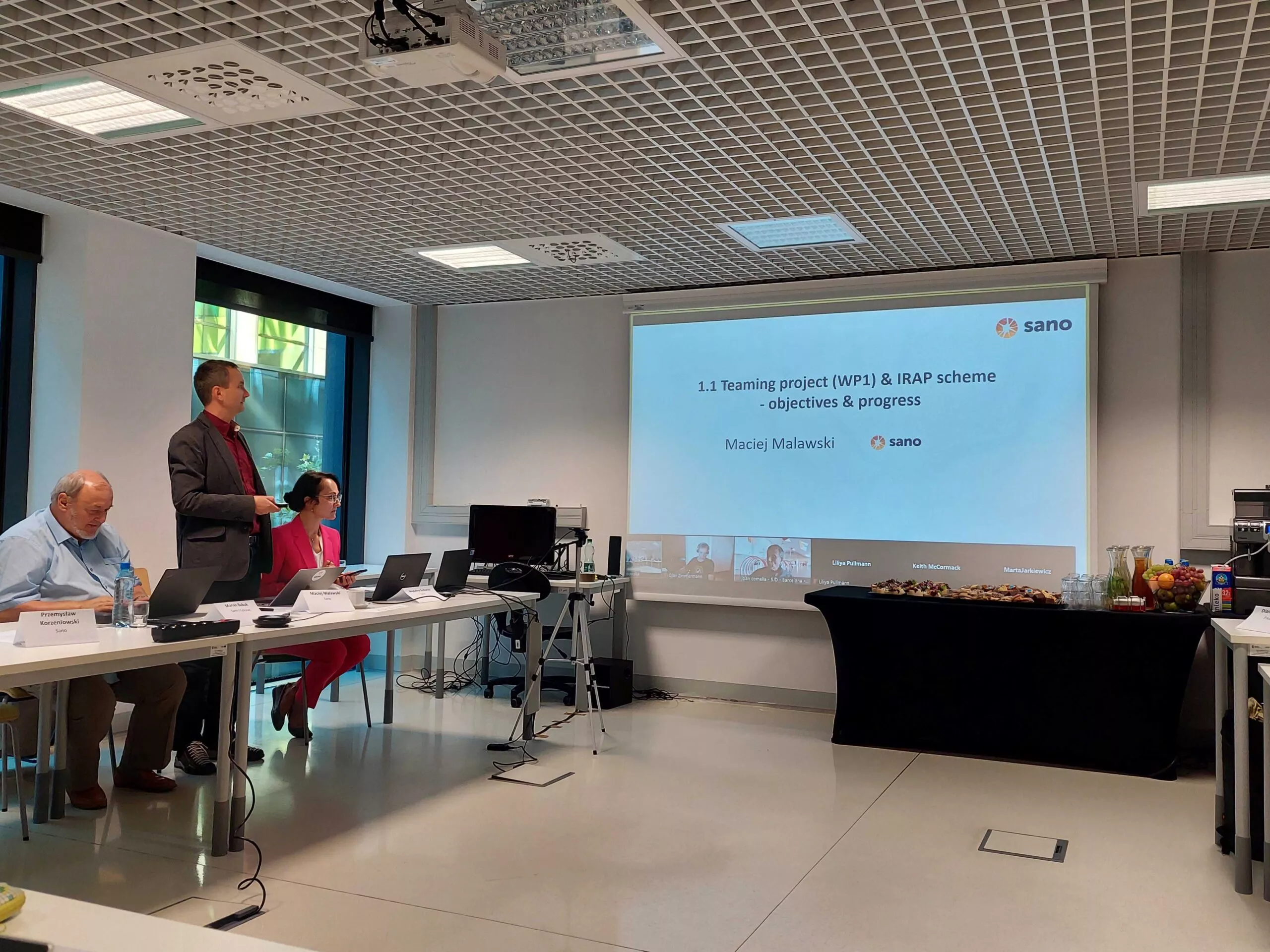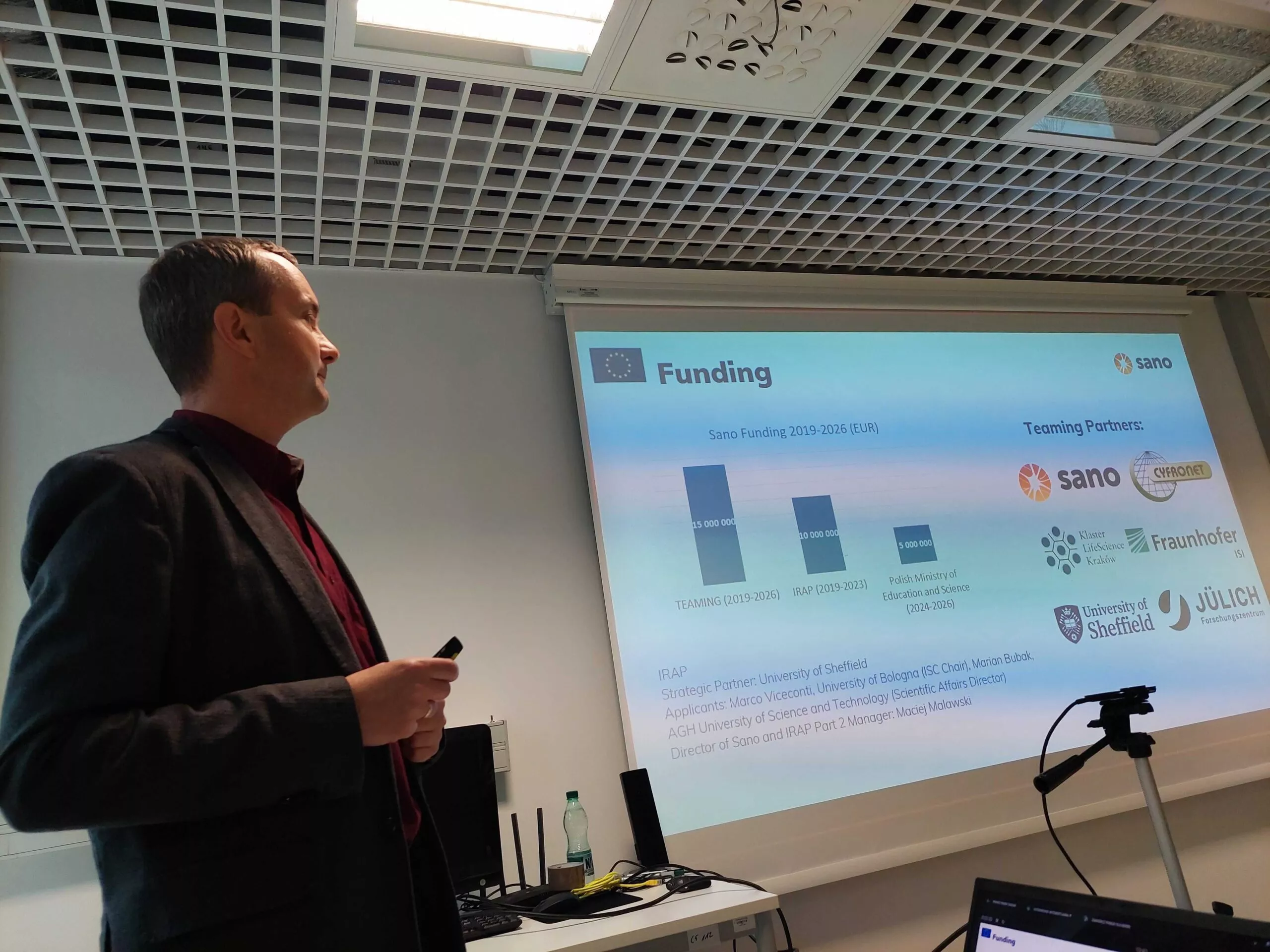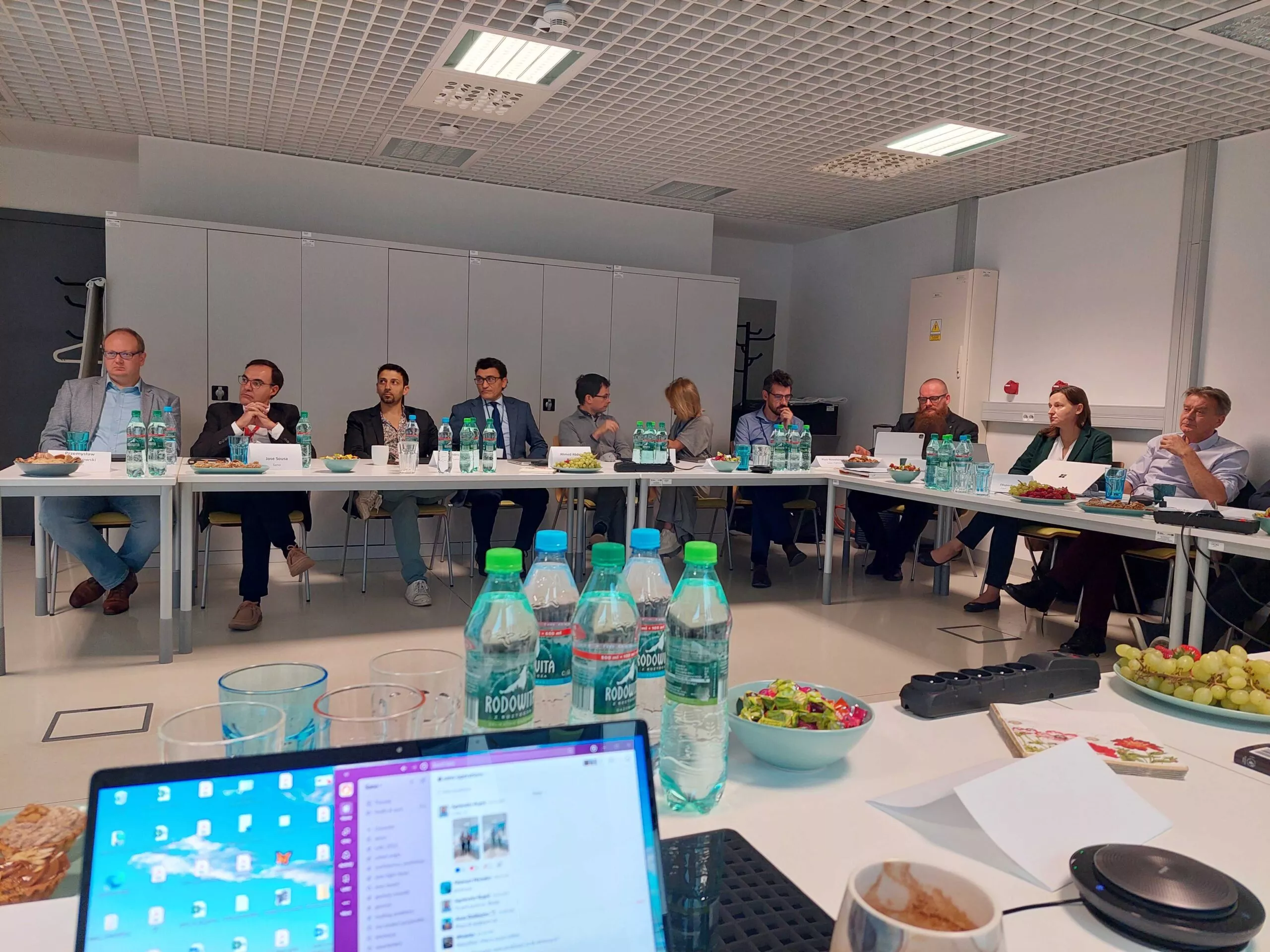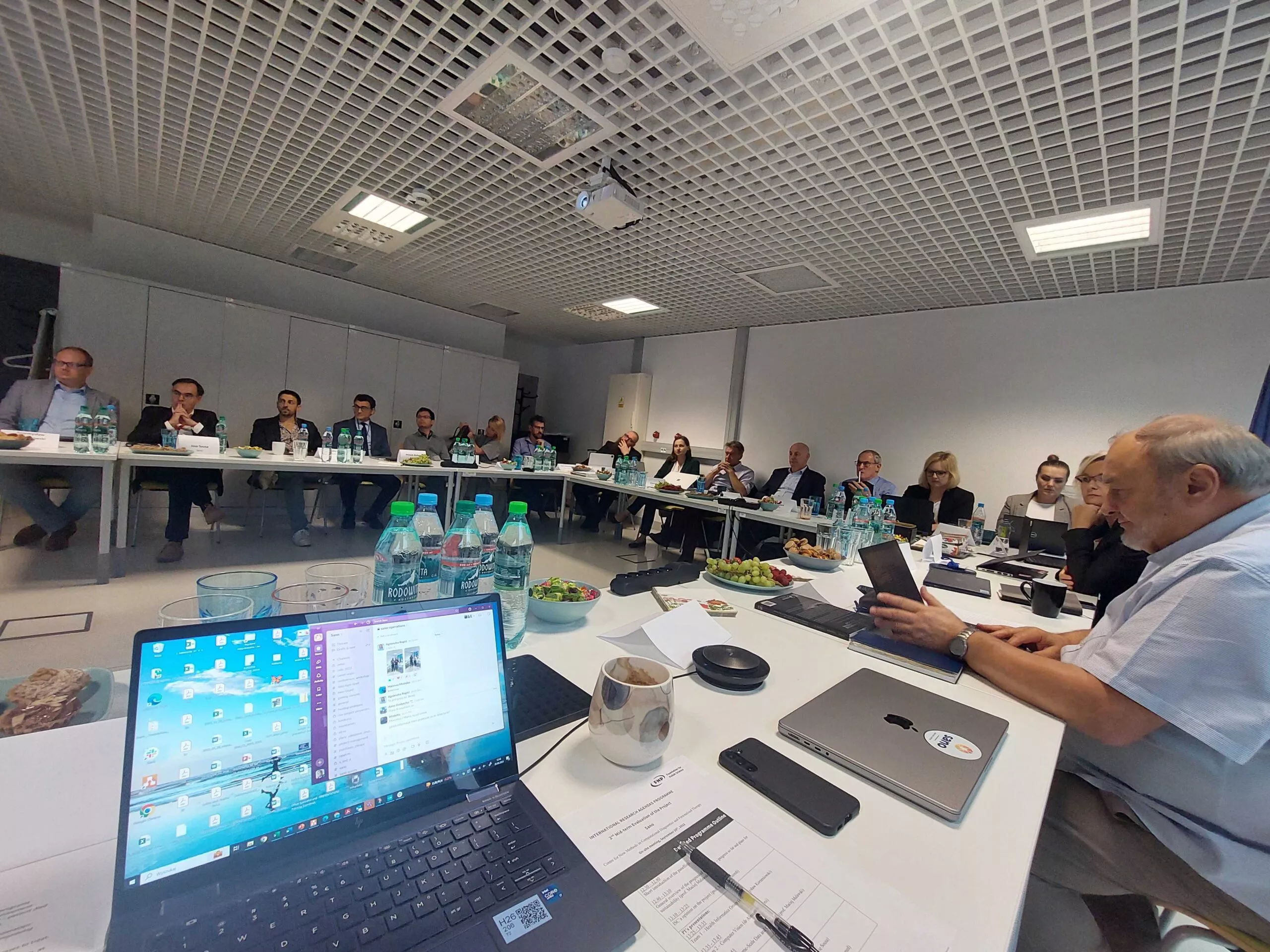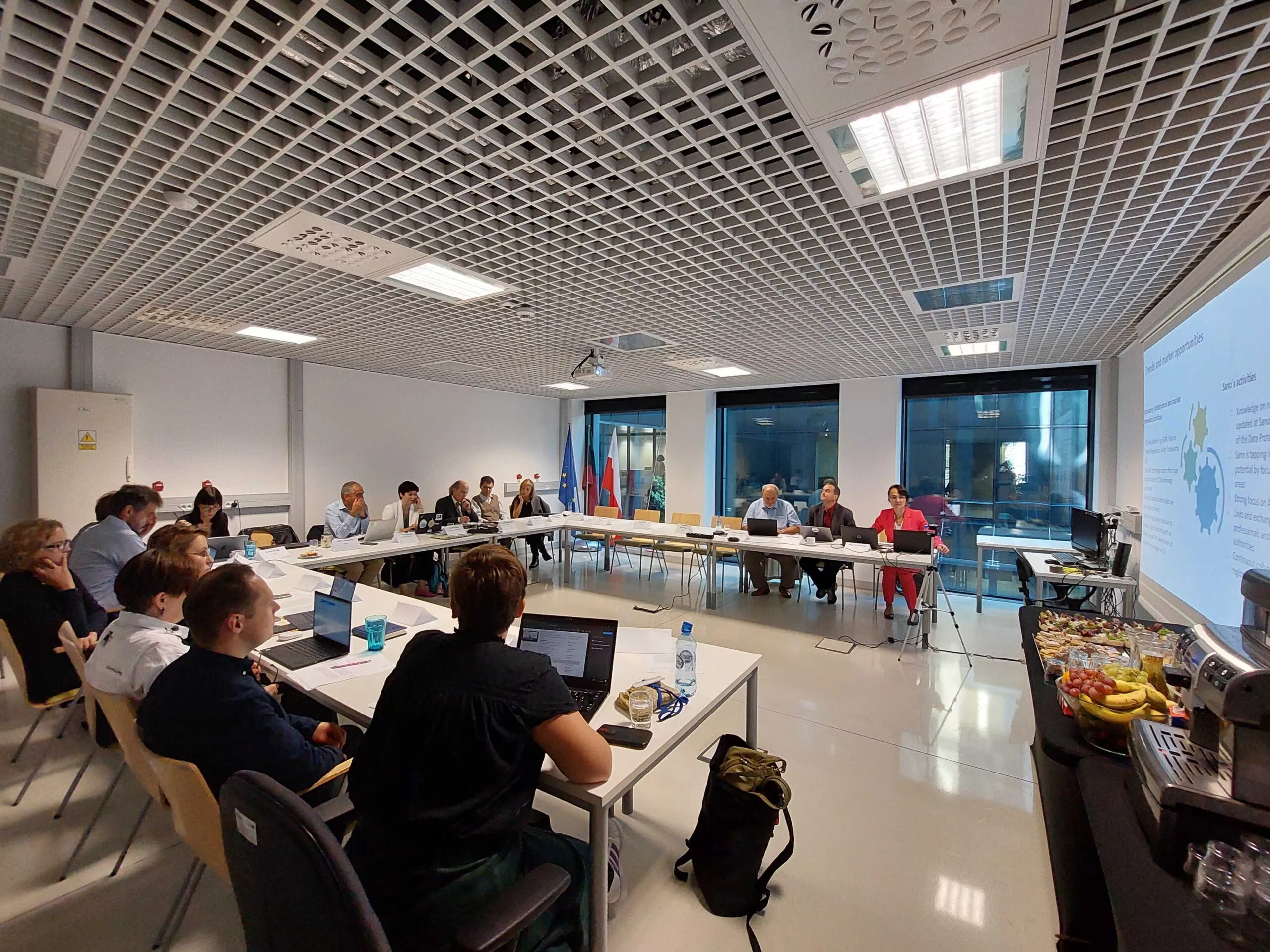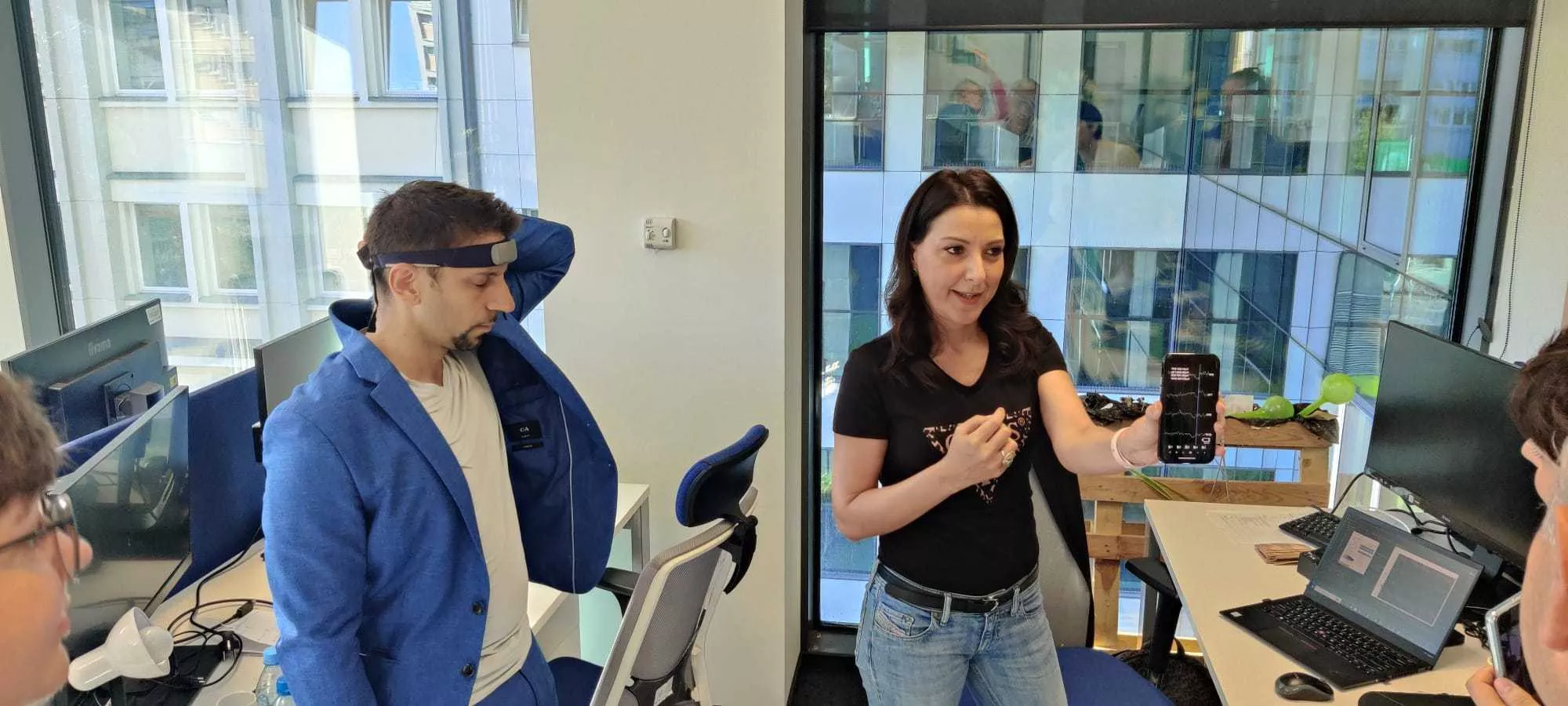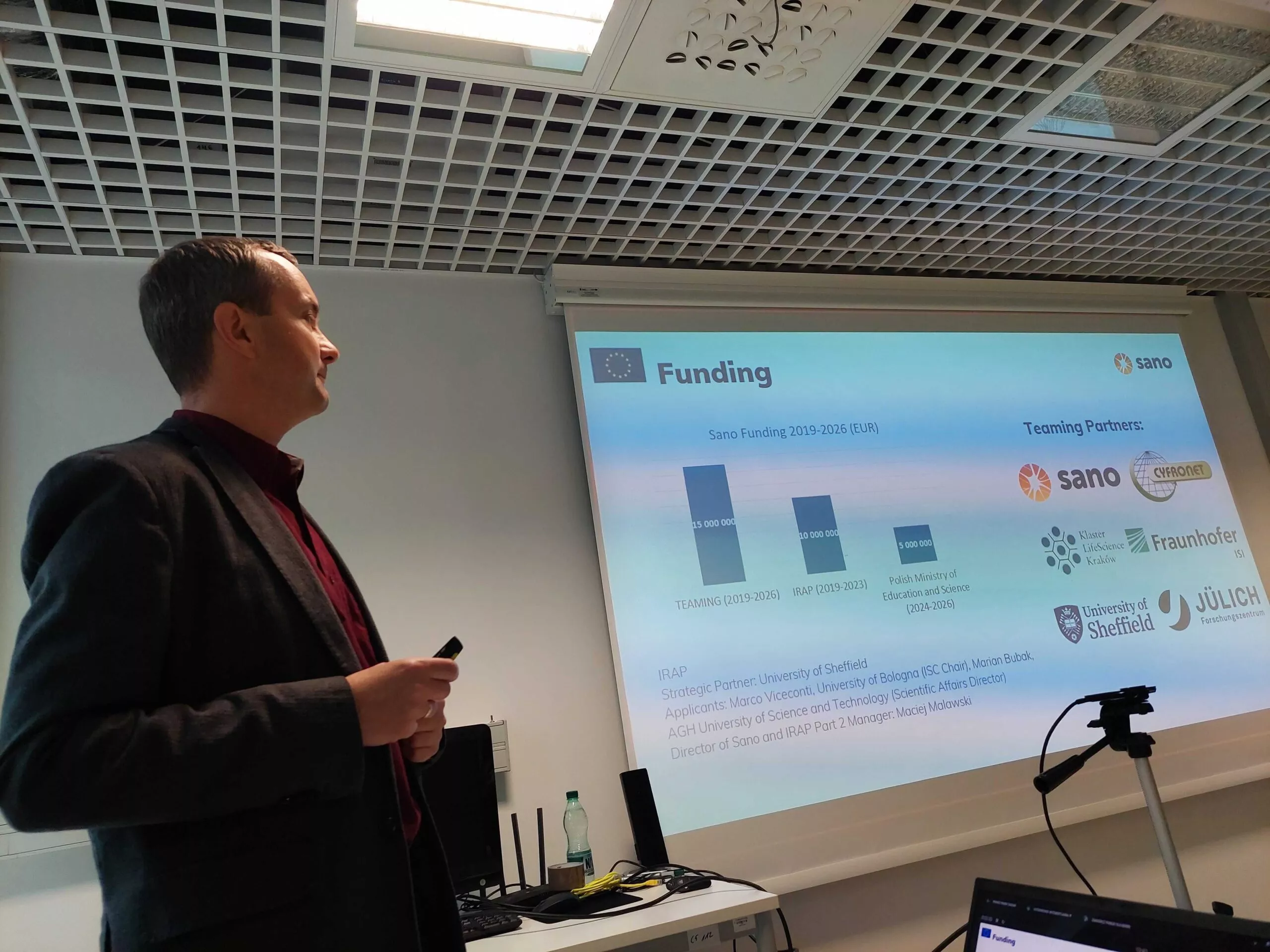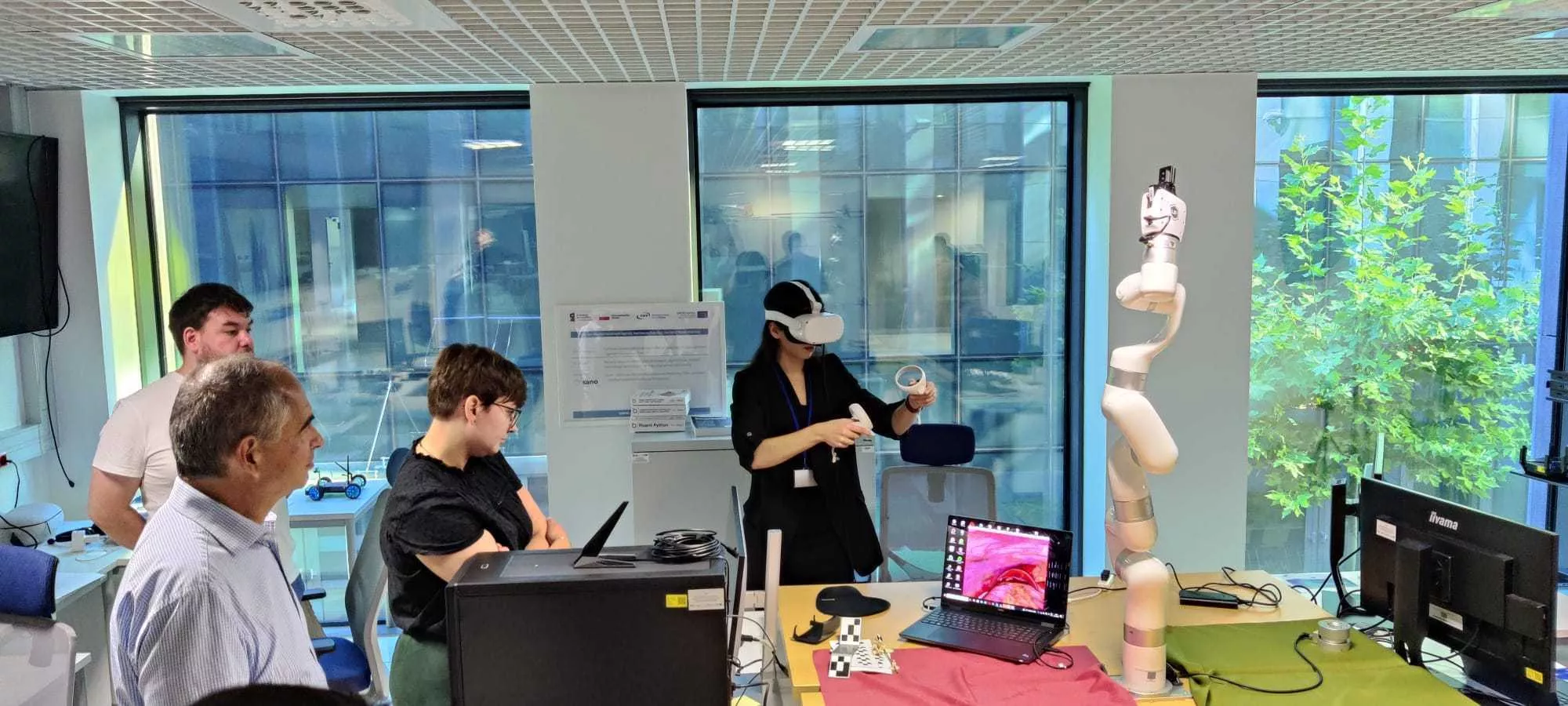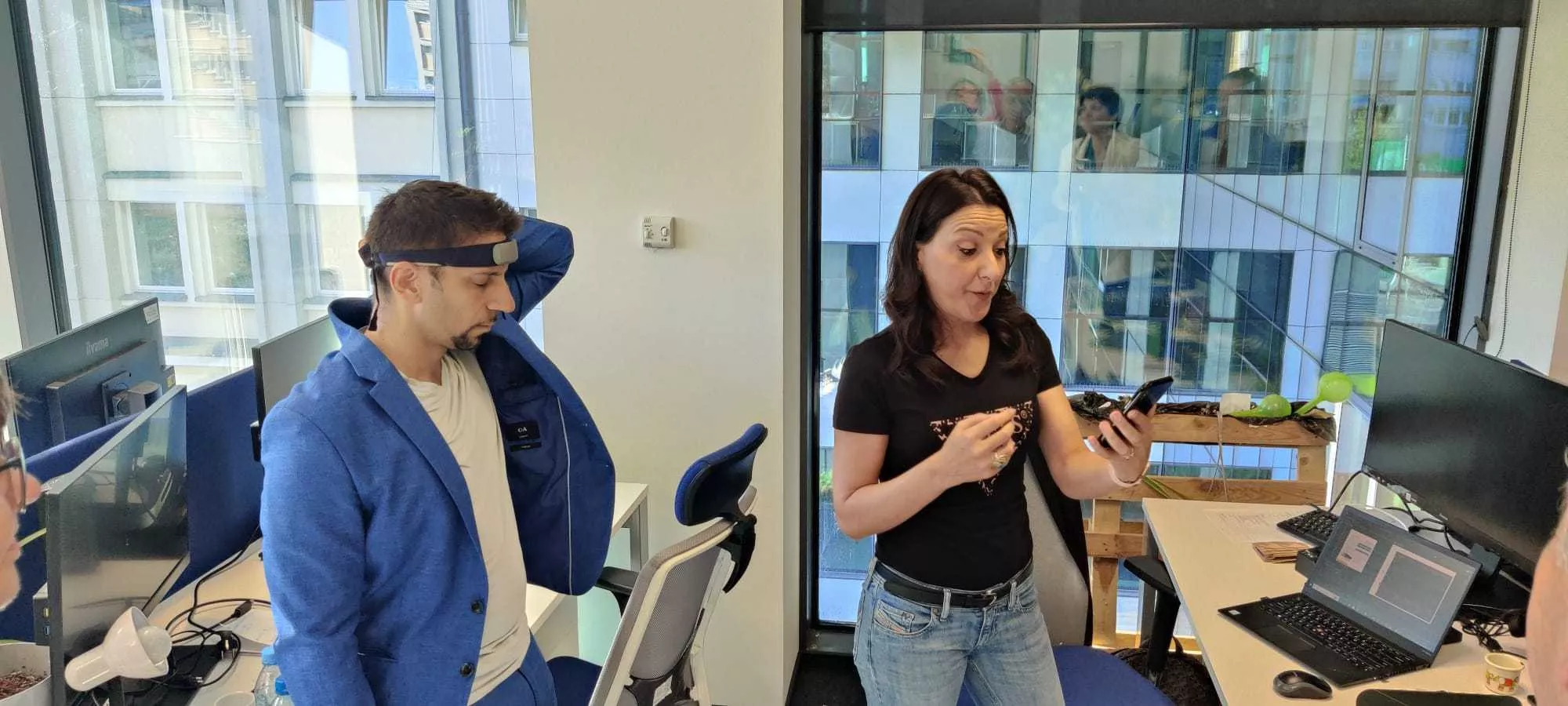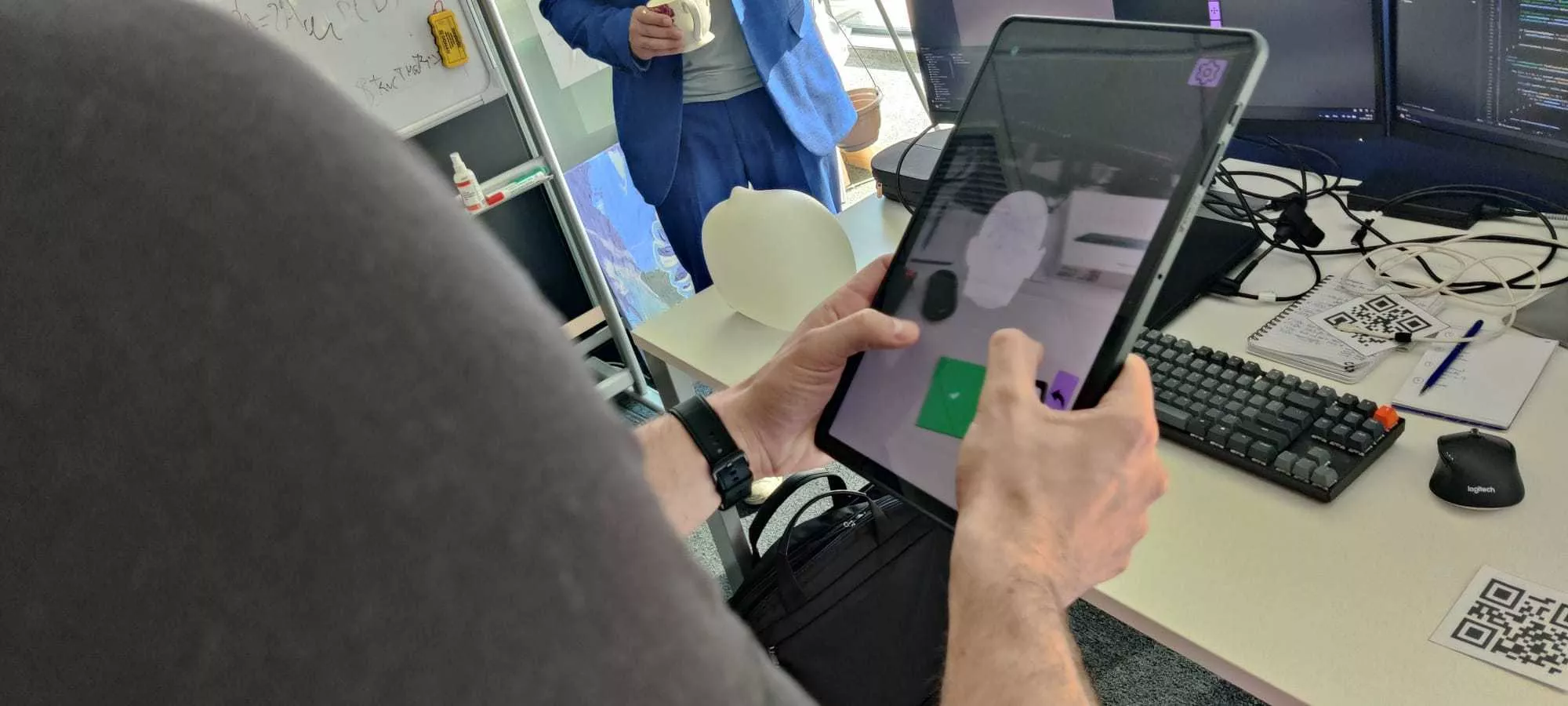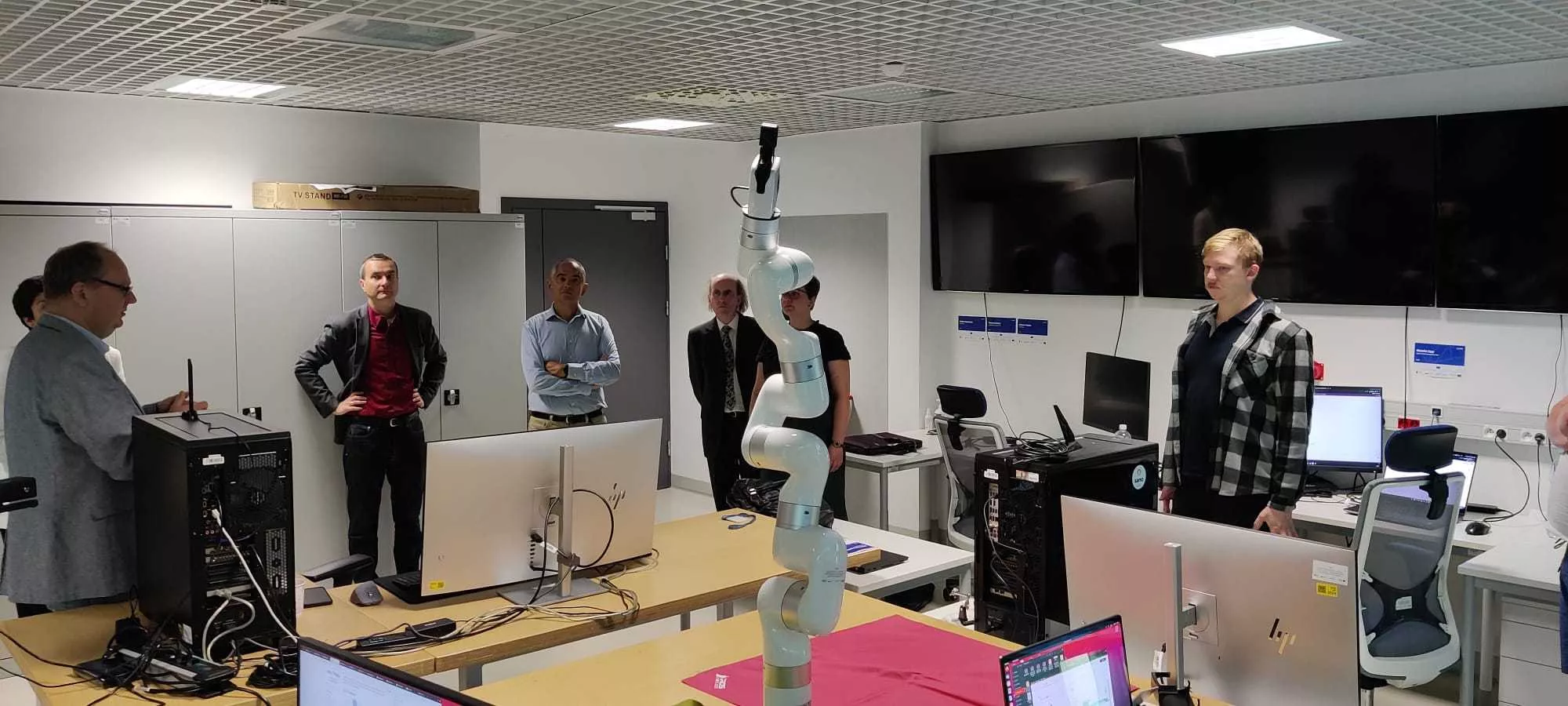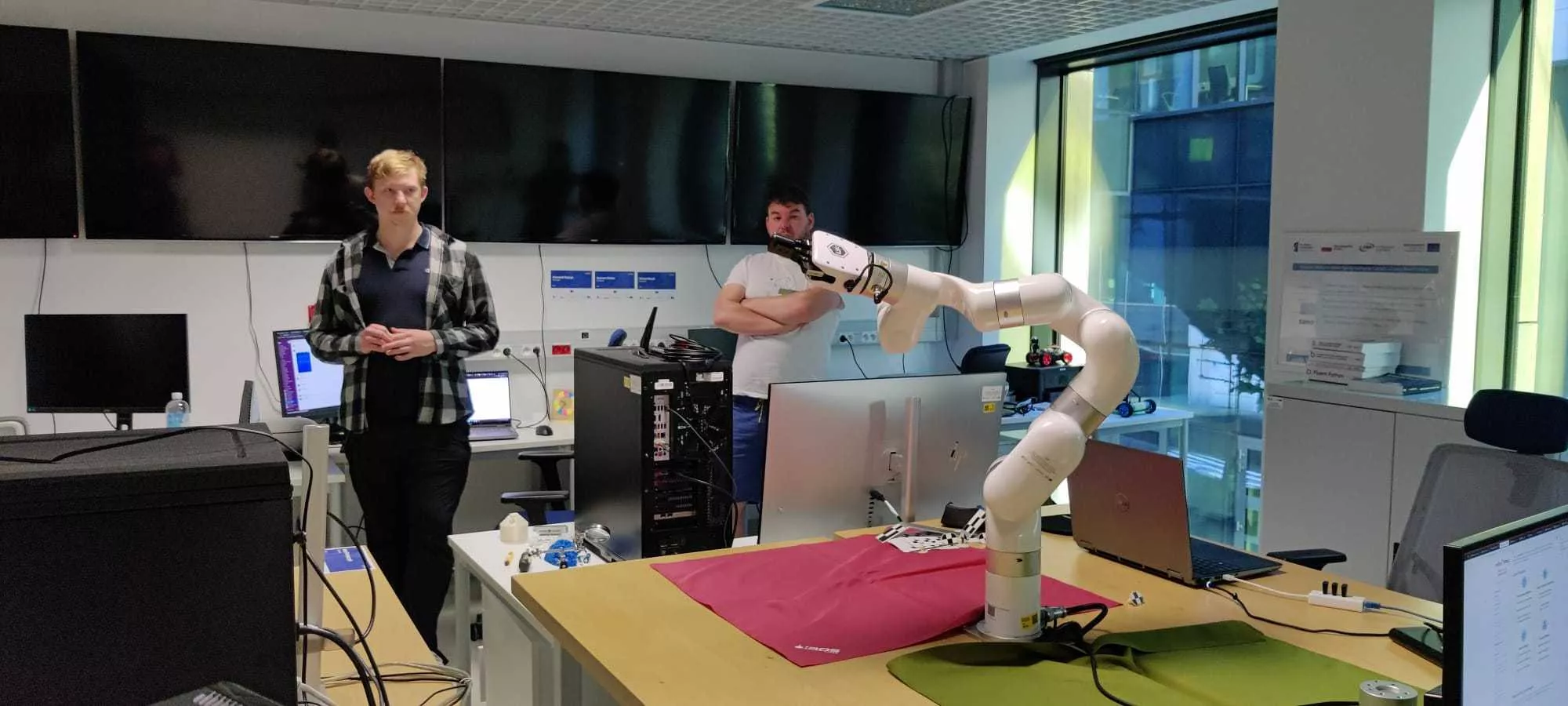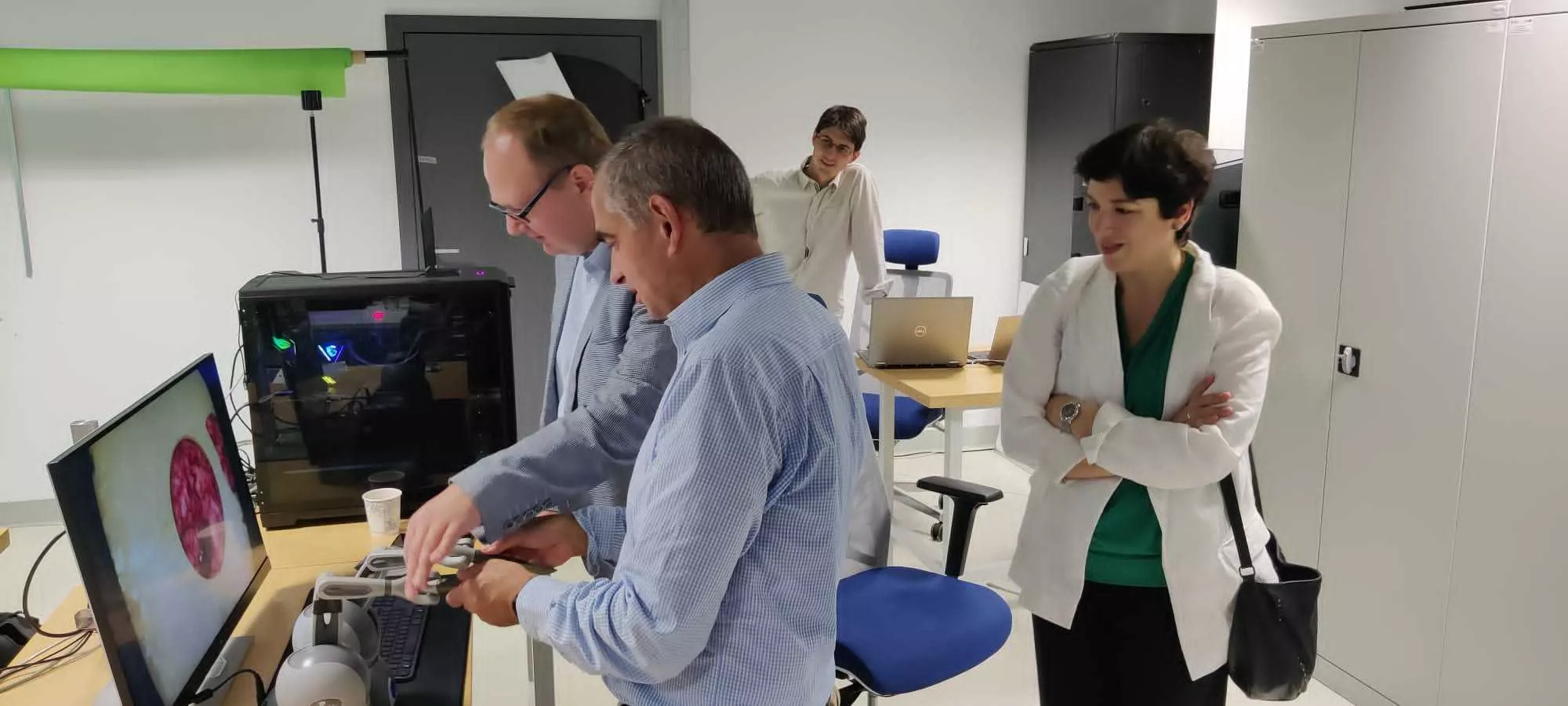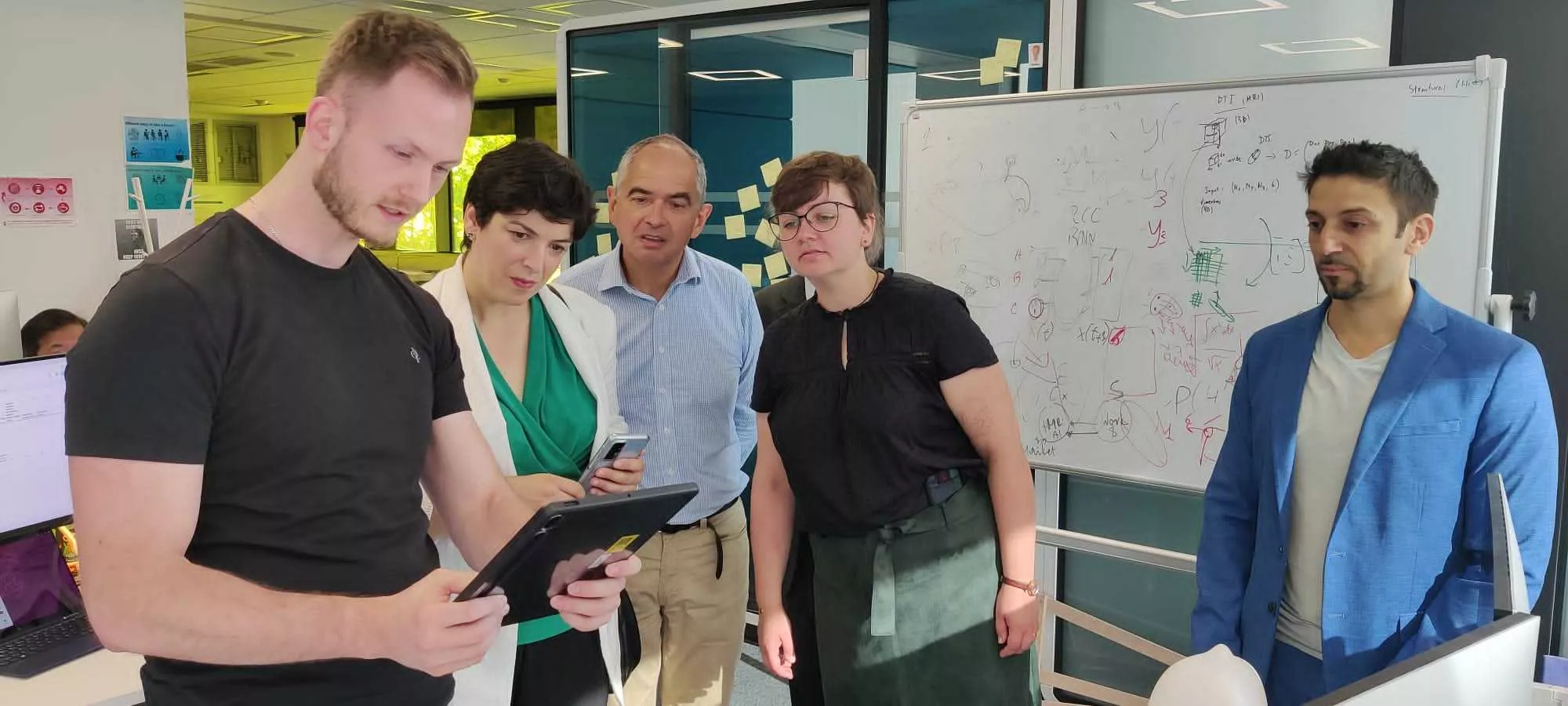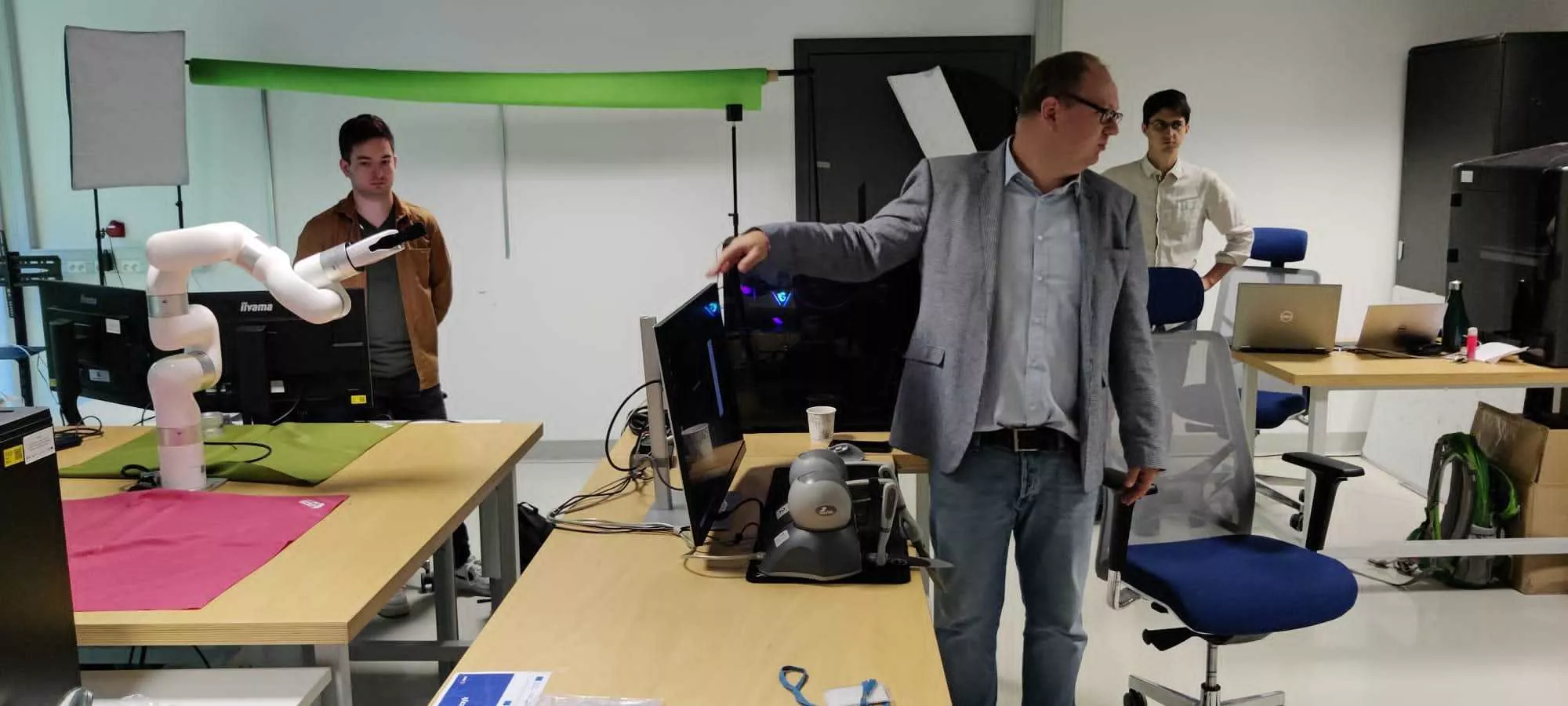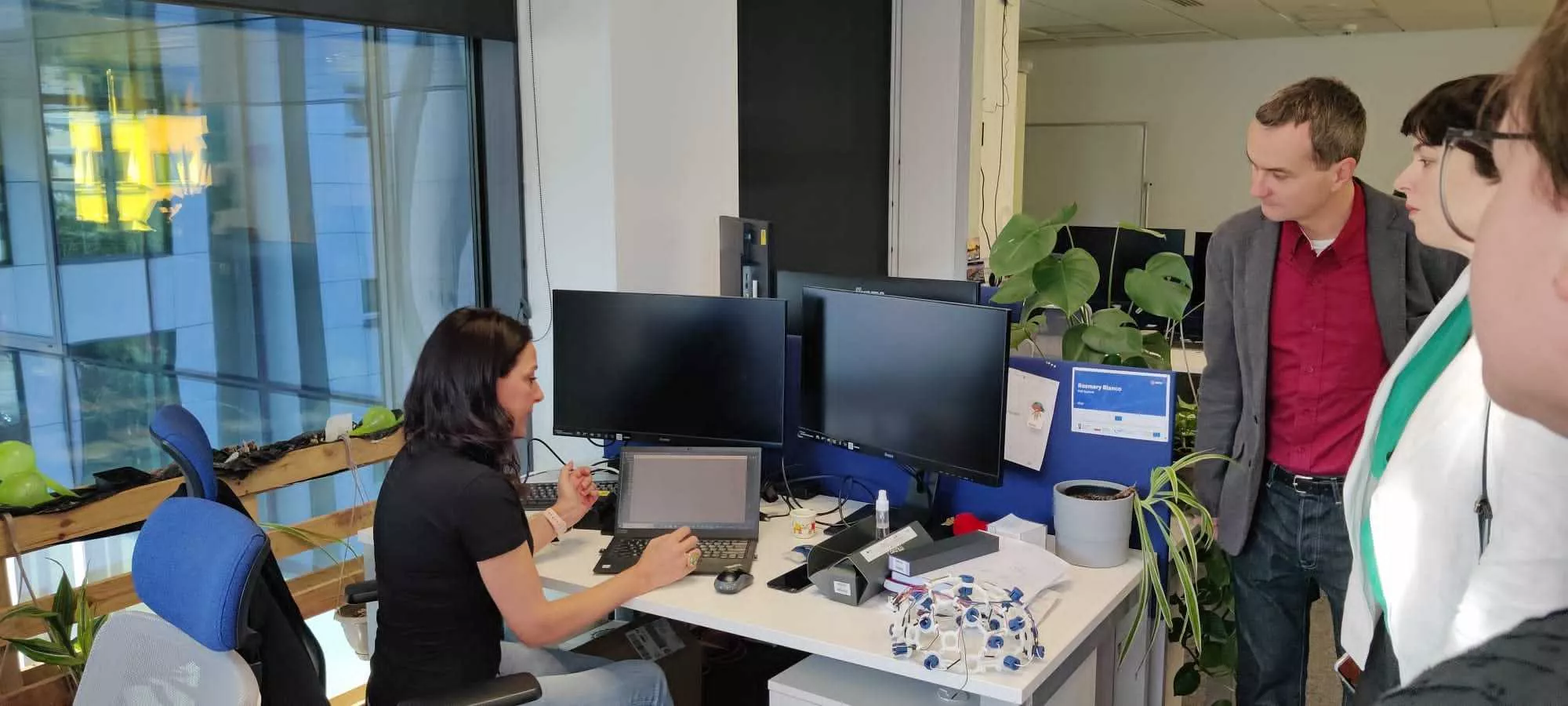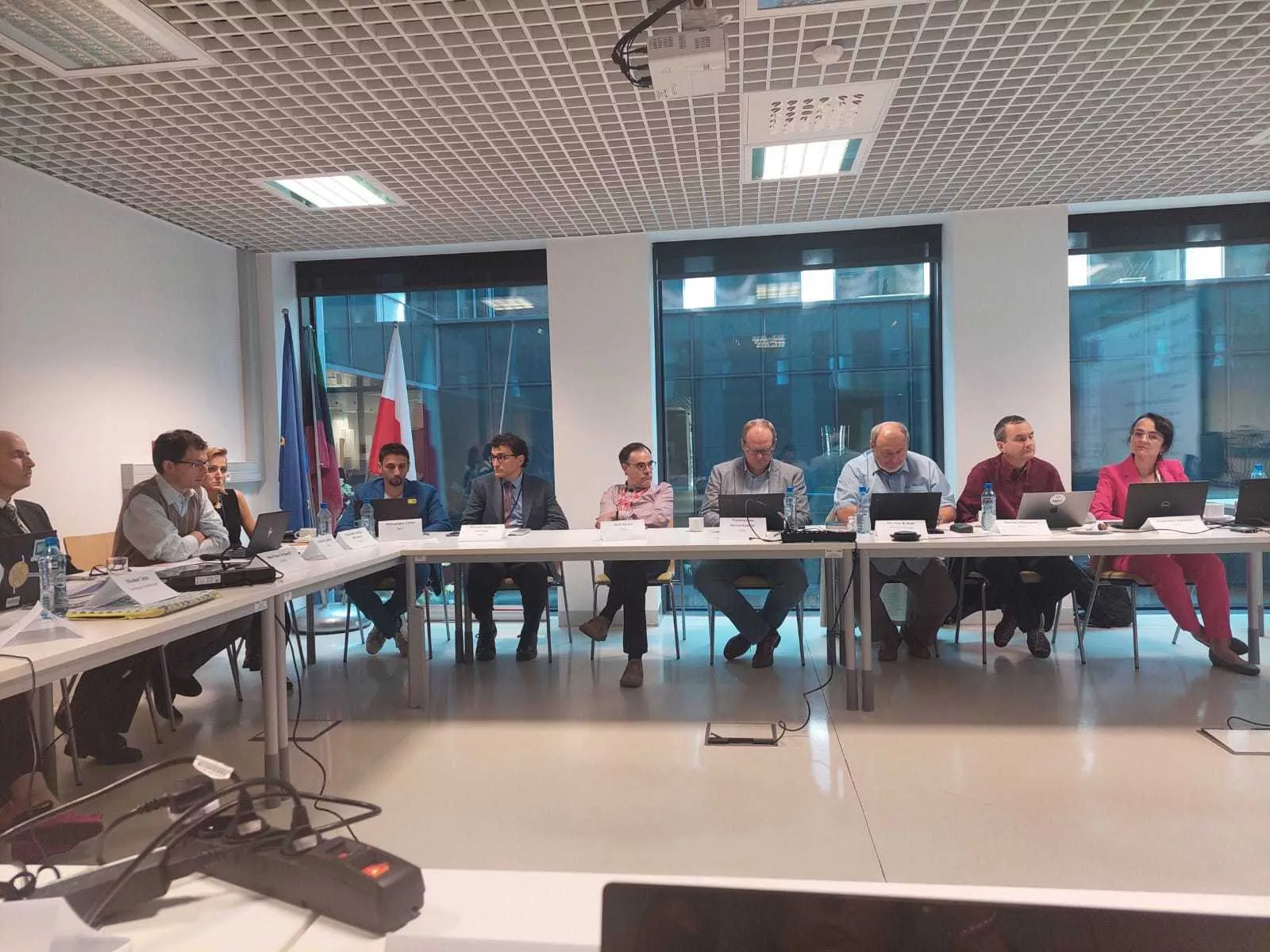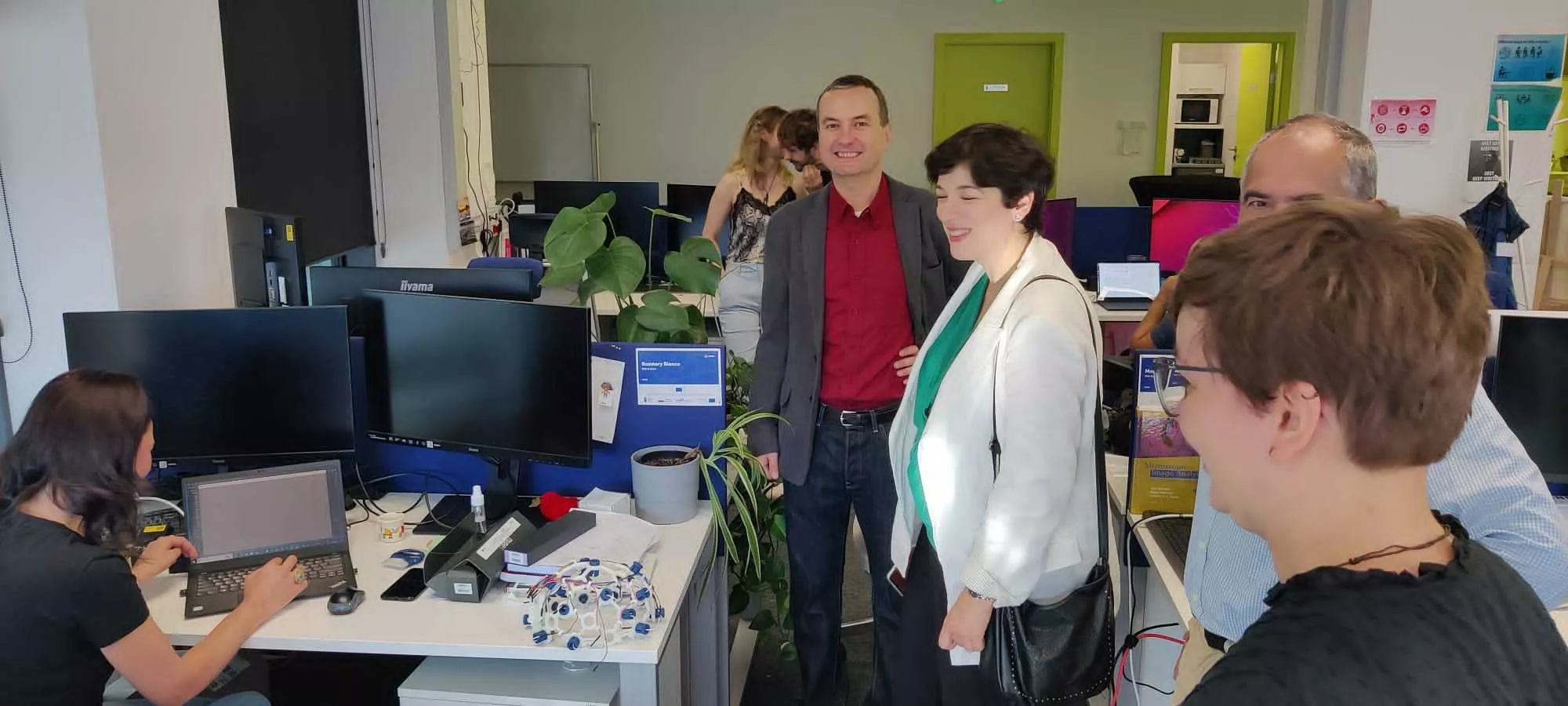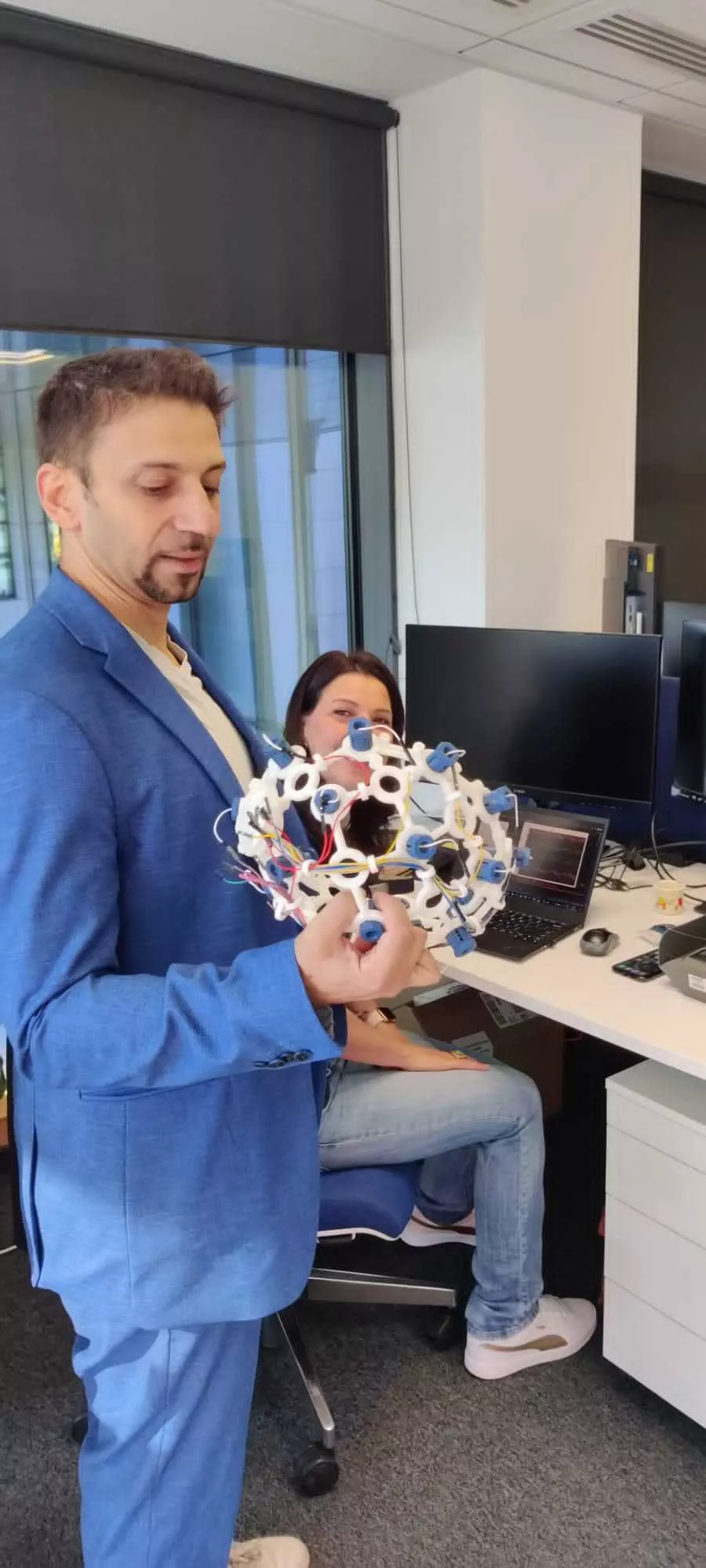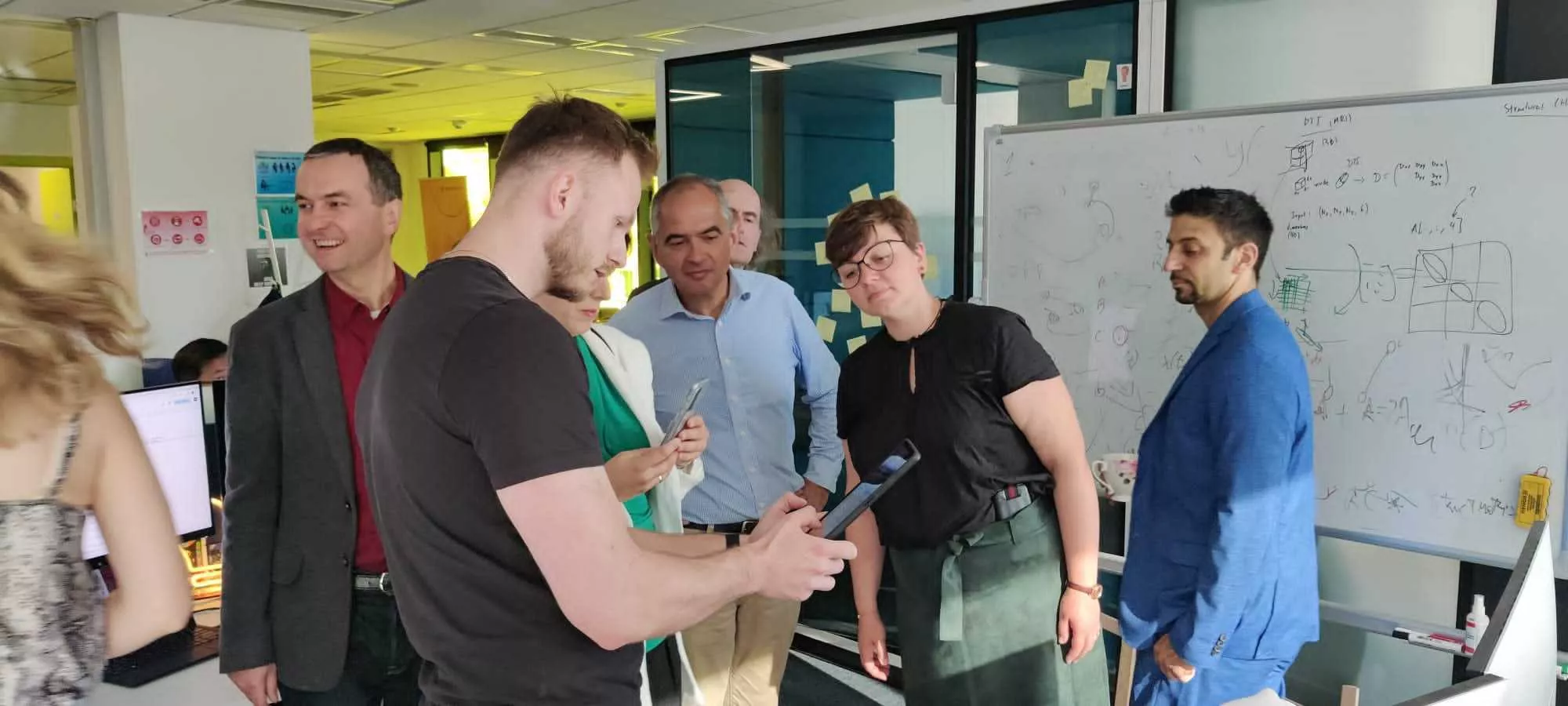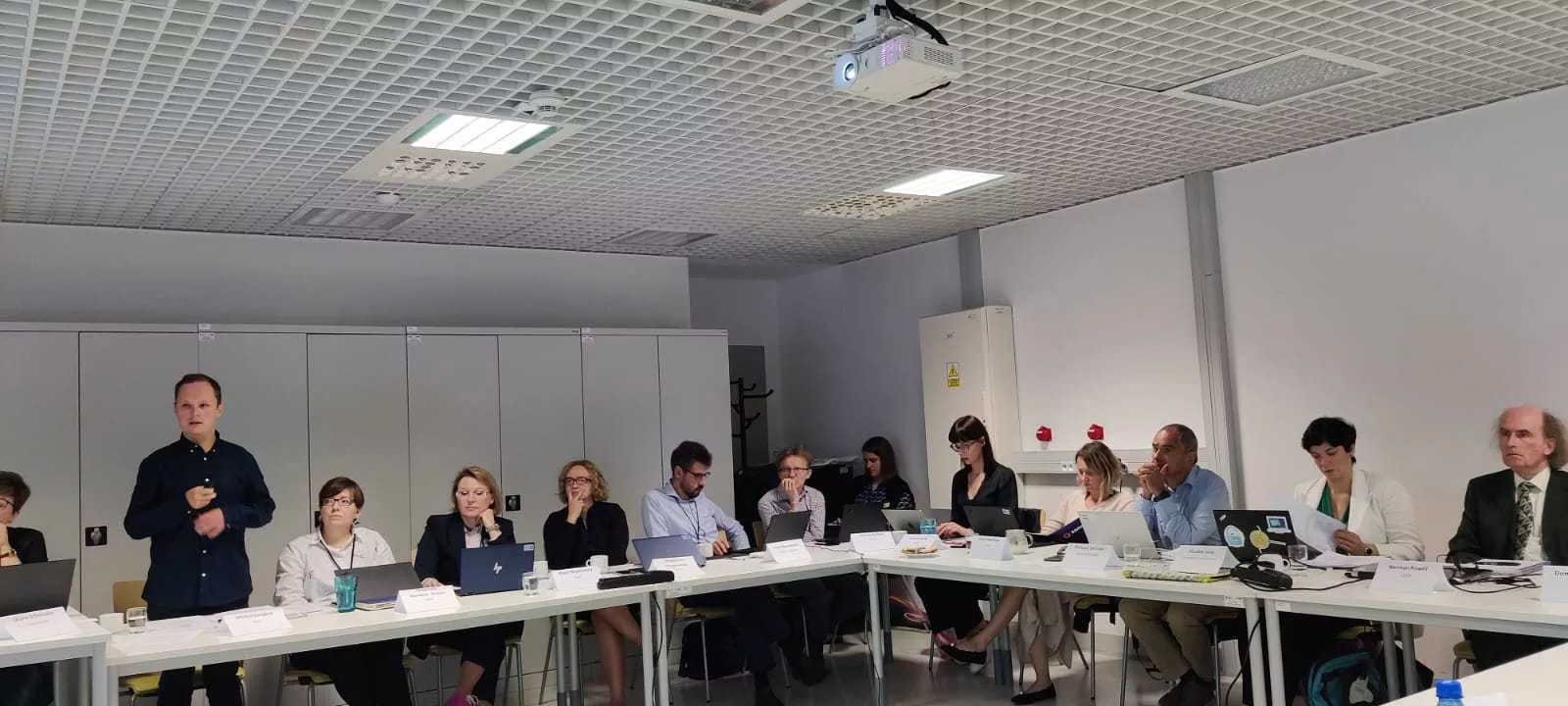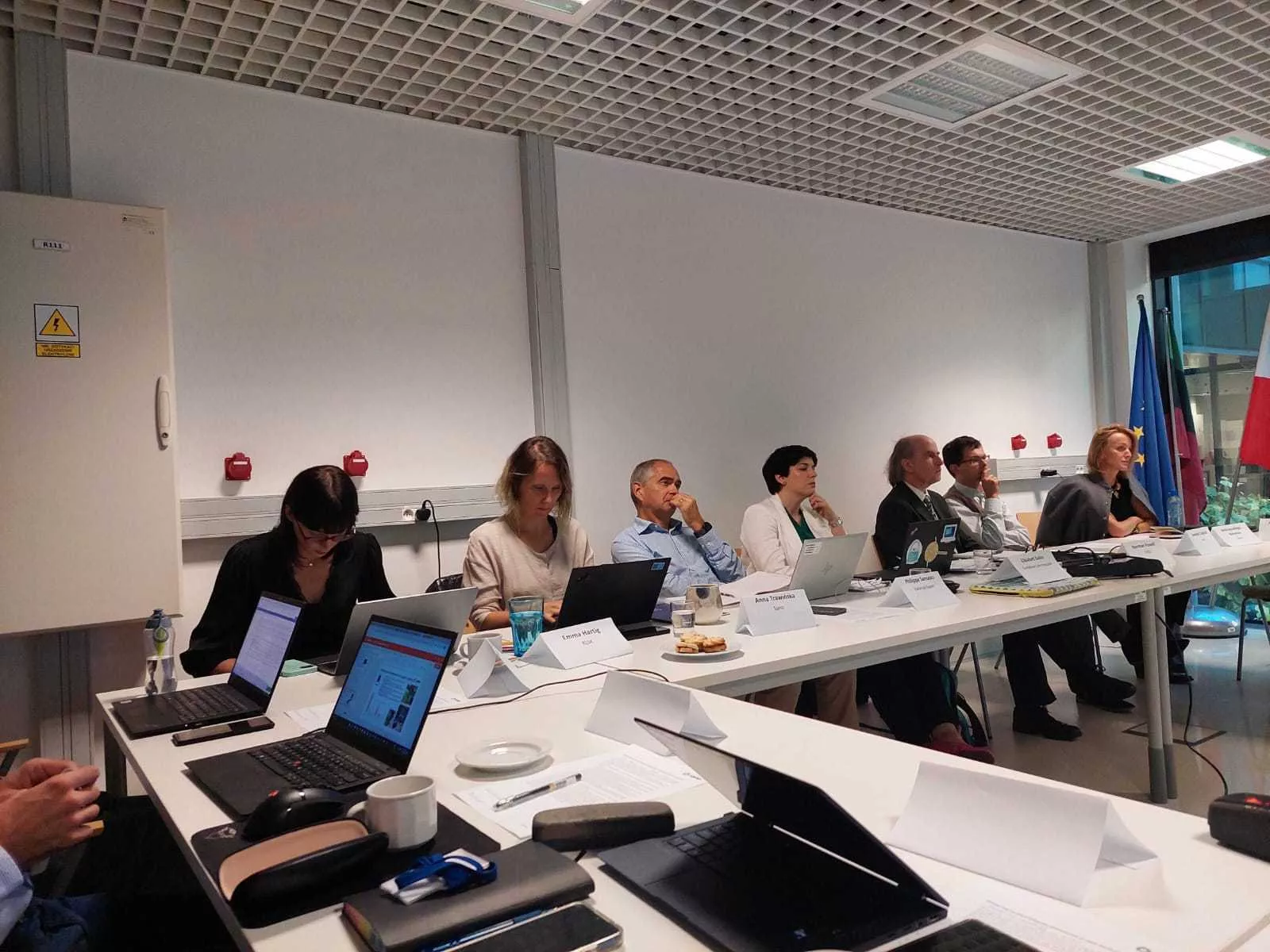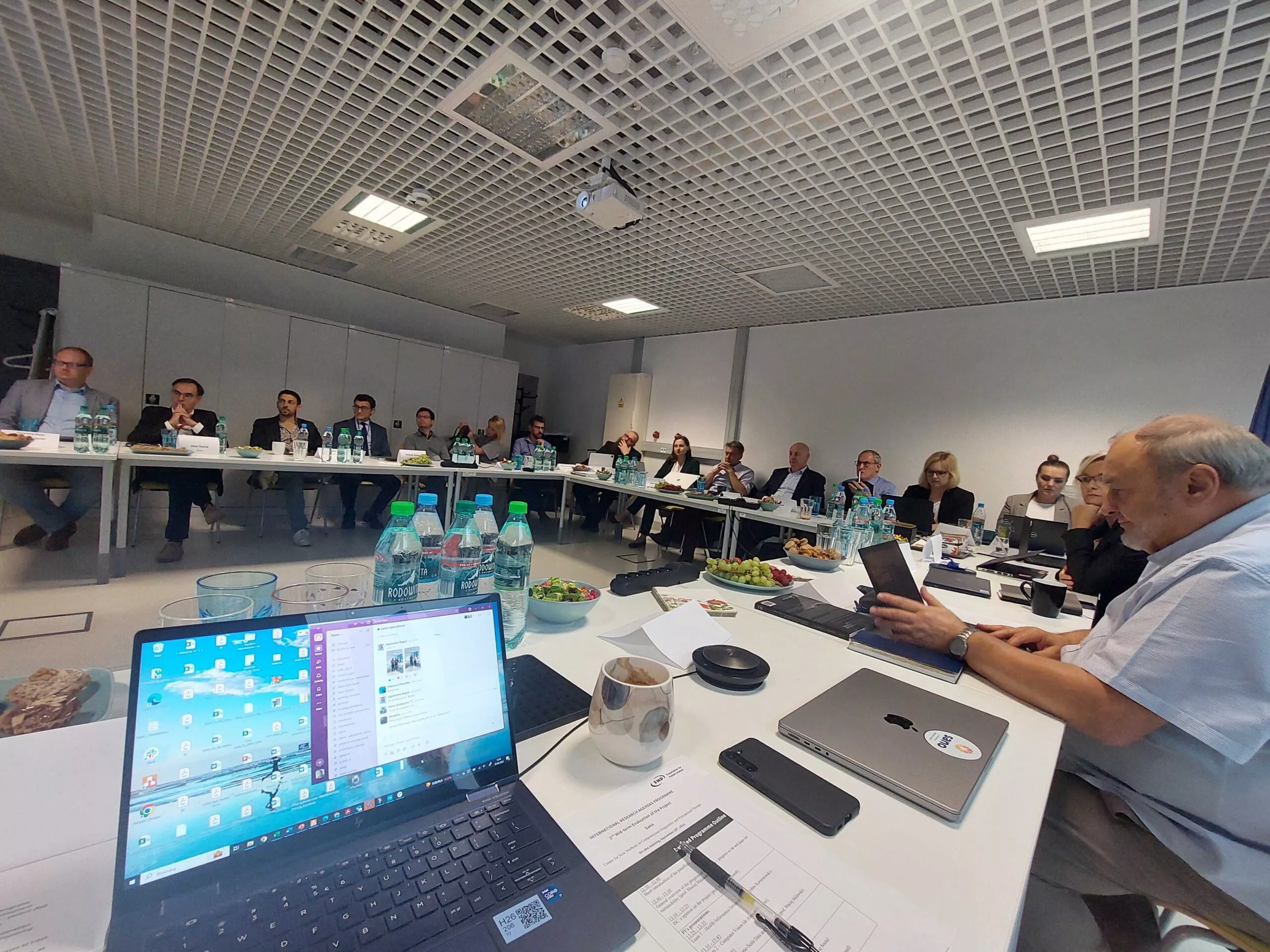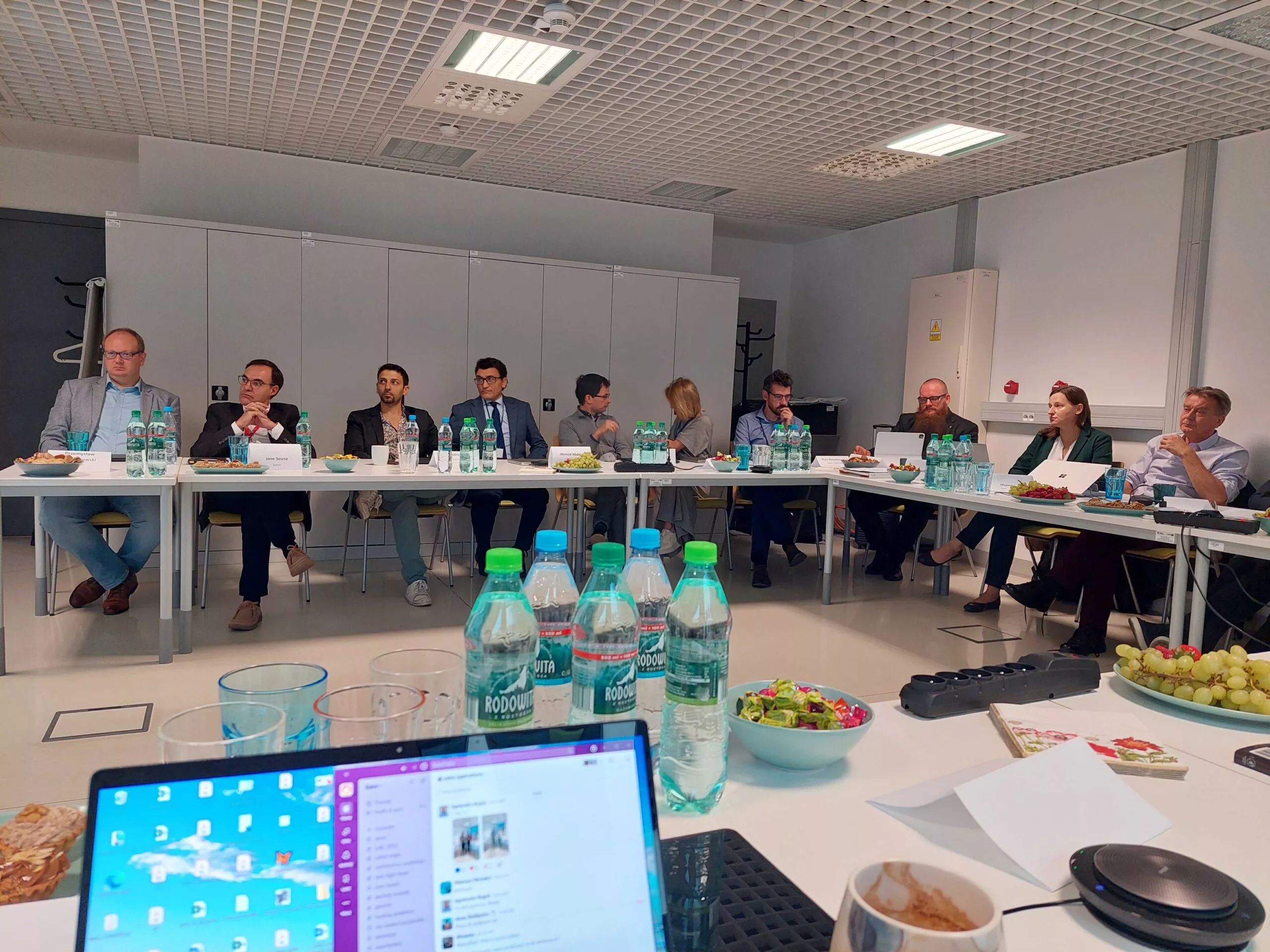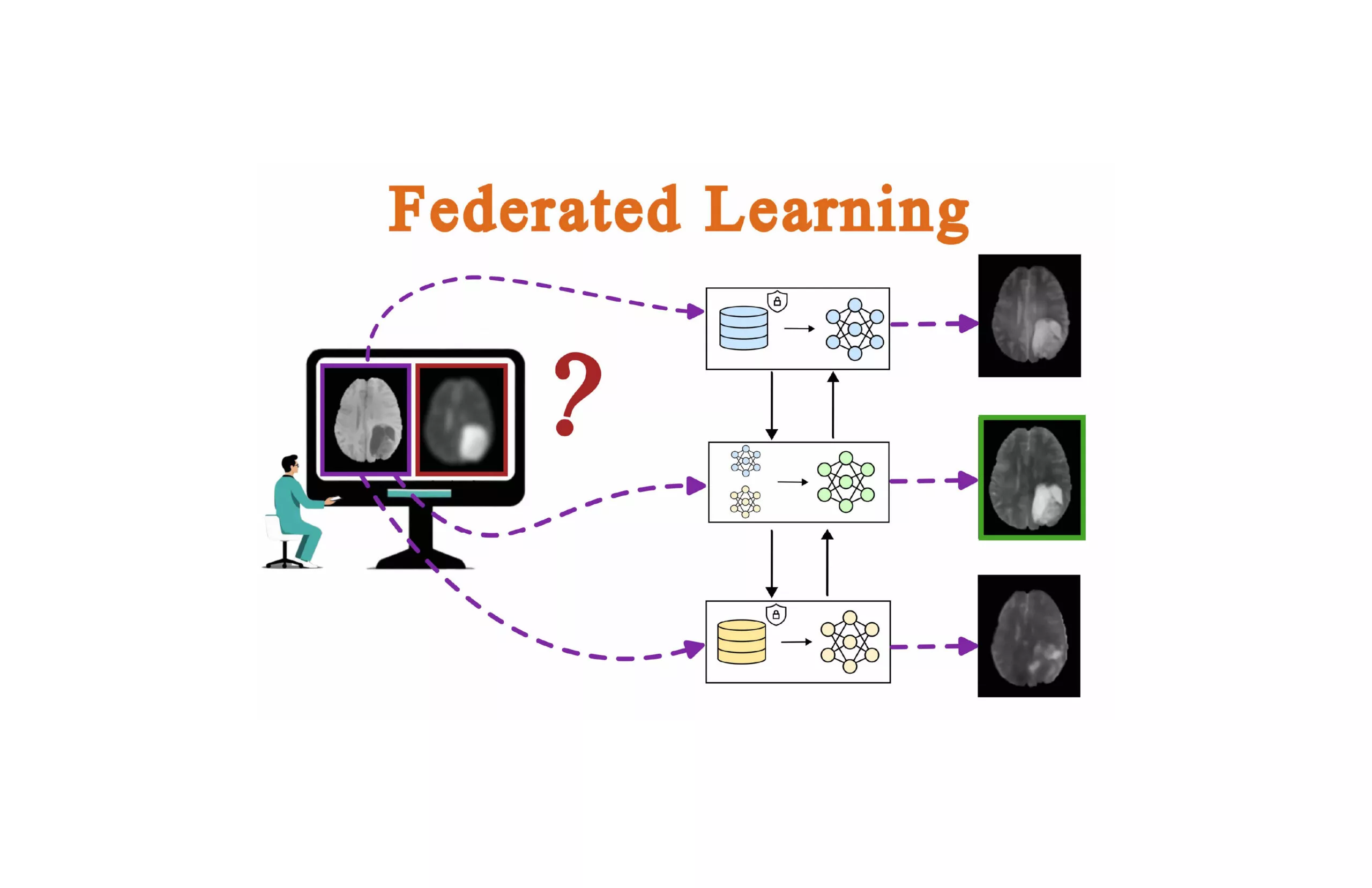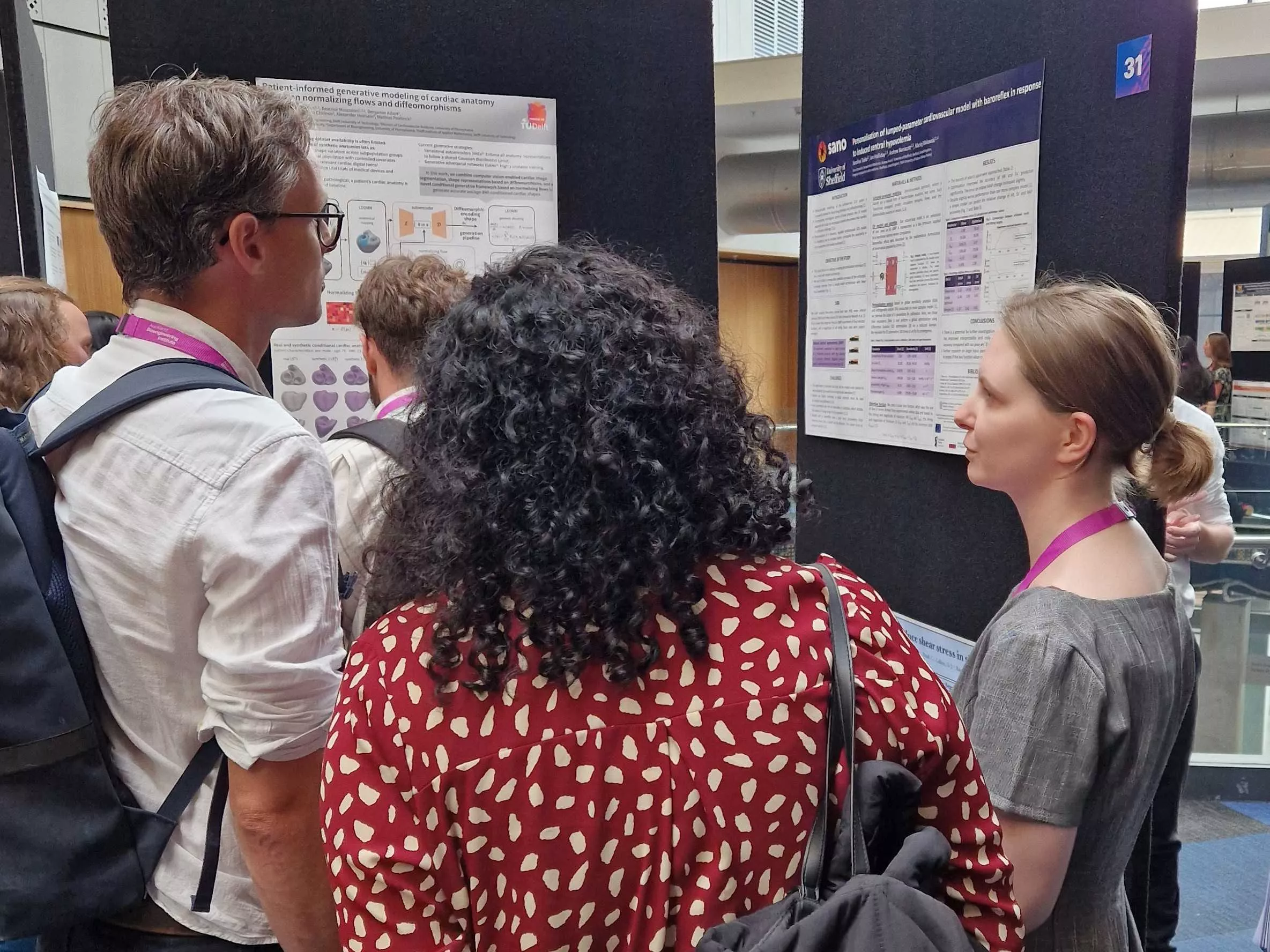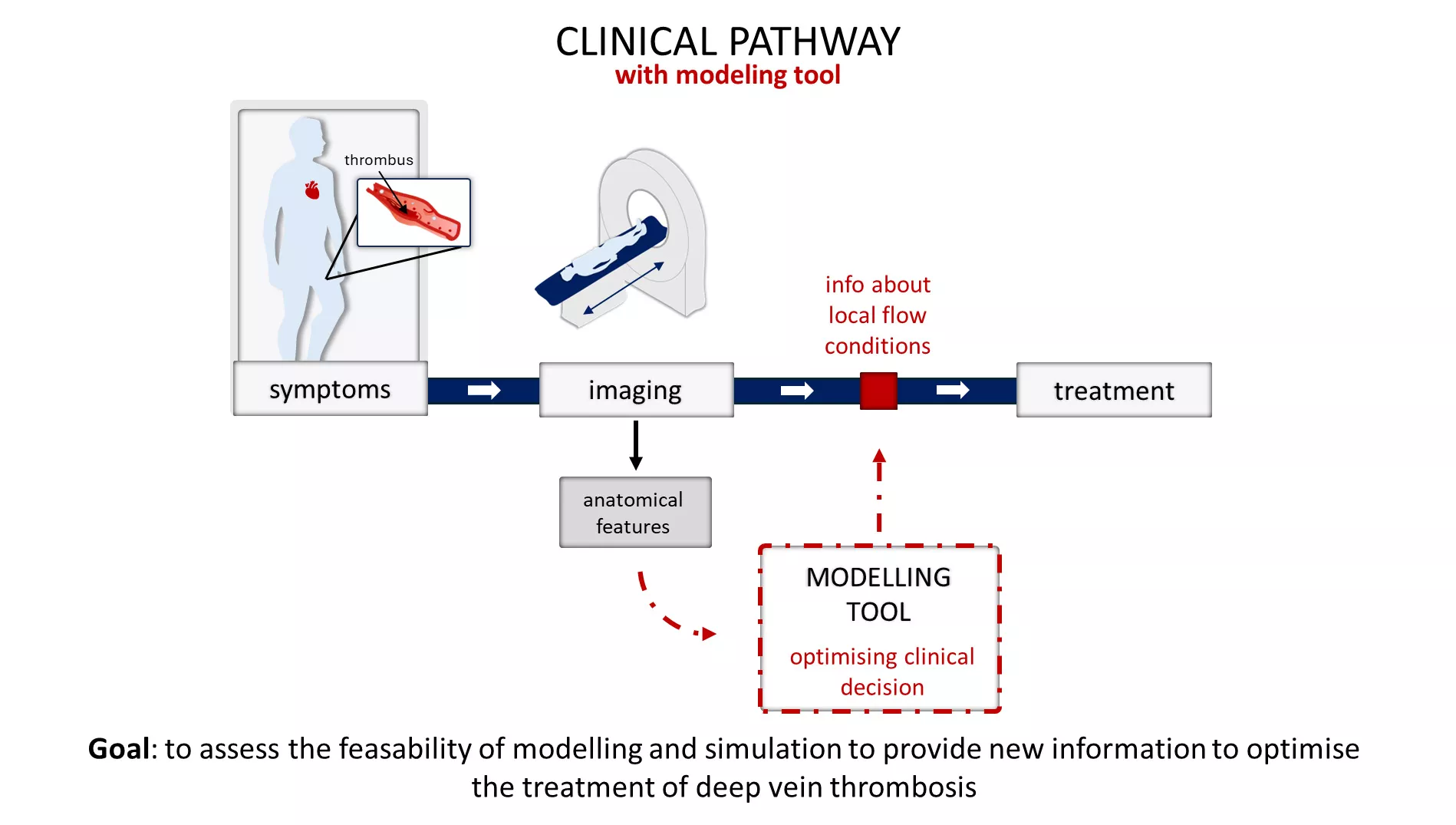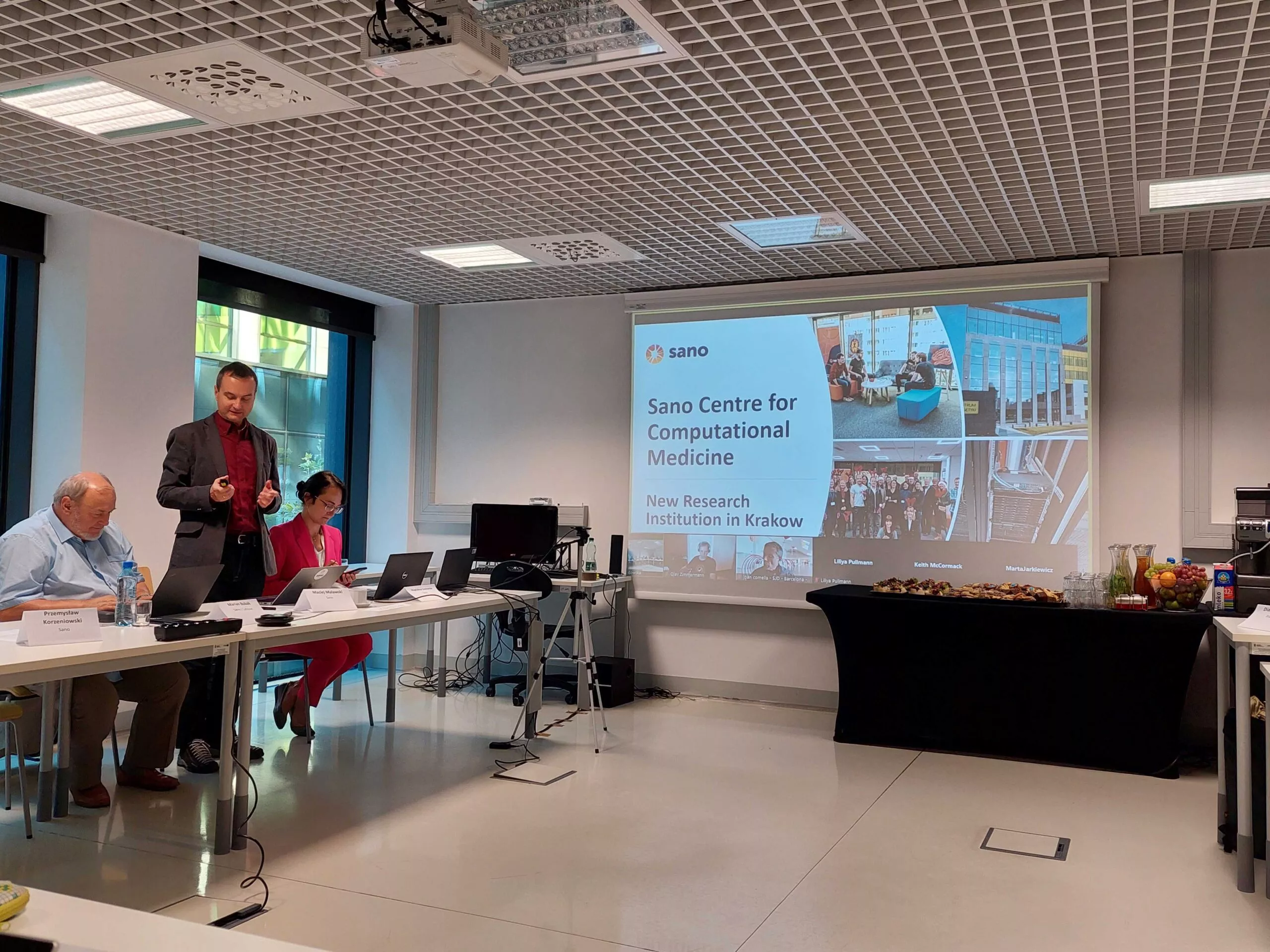
Two review meetings behind Sano
The last days were very intensive for Sano teams and we are excited to announce that we are behind two review meetings that are significant milestones in our ongoing commitment to excellence and innovation.
The first review meeting took place on Thursday, 21st September in Sano Center in Kraków and it was the third periodic review since we received H2020-WIDESPREAD-2018-2020/H2020-WIDESPREAD-2018-01 – TEAMING 2. We were honored to host Elisabet Salas, EC Project Officer as well as Philippe Sanseau and Joan Xavier Comella Carnice (unfortunately only online this time).
Teaming for Excellence is one of the actions in the Horizon 2020 EU Framework Programme aimed at closing the gap in research excellence across Europe by supporting the creation of new research institutes. Investing in Europe’s research and innovation potential is carried out by supporting the creation of new non-profit research institutes. Having secured this prestigious grant, the overarching objective, during Sano’s EC-funded phase (€15 M until July 2026) and beyond, is to become a major, well-established Centre of Excellence in the area of computational medicine, coordinating its substantial research and development efforts across Małopolska, Poland, and internationally.
We – together with our Partners:
- Cyfronet – represented at the review meeting by Marian Bubak and Piotr Nowakowski
- Klaster Life Science – represented by Emma Hartig
- The University of Sheffield – represented by Andrew Narracott, Keith McCormack (both online), and Norman Powell
- Julich Forschungszentrum – represented by Olav Zimmermann (online)
- Fraunhofer ISI – represented by Liliya Pullmann, Tanja Bratan (both online), and Diana Schneider
described Sano’s progress and development in the fields of all work packages.
The review was a great success and our guests were really impressed to see our teams at work during the Sano tour.
After the formal review, the experts acknowledged the progress we made despite some challenges we faced and congratulated us on the growth of the Center and on the progress in the delivery of scientific results so far. They also provided recommendations about the positioning of Sano, improving diversity, being ambitious in the grant proposal writing, extending collaborations with clinicians, and in general being ambitious in becoming a European Centre of Excellence.
On Monday, September, 25th took place the second Mid-term Evaluation of the project which centers around our research agenda and Sano development in the last years through the lens of the FNP Foundation for Polish Science.
As Sano Centre we are benefiting two grants – mentioned Teaming 2, and the International Research Agendas programme (IRAP) grant, which supports the development of scientific structures, including the establishment of 6 Research Teams, led by renowned scientists. With significant funding provided by the Foundation for Polish Science of €10 M until December 2023, Sano conducts research in order to solve specific global scientific challenges and develop advanced solutions to complex medical challenges.
The Sano Centre combines state-of-the-art expertise in artificial intelligence and machine learning, computer vision, physiological modelling, large-scale high-performance computing with fundamental biomarker identification, using advanced simulation and data analysis methods in a fully integrated approach to clinical decision support. Offering open collaboration at all levels of the development pipeline, Sano acts not only as a core provider of conceptual and developmental expertise, but also as a partner to industrial and clinical users, fostering modernization, innovation, and increased productivity. This way we also contribute to the scientific and economic challenge of the introduction of new computational technologies into medical space.
Sano Centre for Computational Medicine addresses the fundamental needs of national and European society by developing a new range of innovative computational tools that will hopefully change the future of healthcare.
Thank you to all the leaders and their team members who contributed good science backed up by high-quality publications, and thank you to all the support development team who made it happen.
The special thanks to Magdalena Godowska and Maja Więckiewicz for the all coordination.


